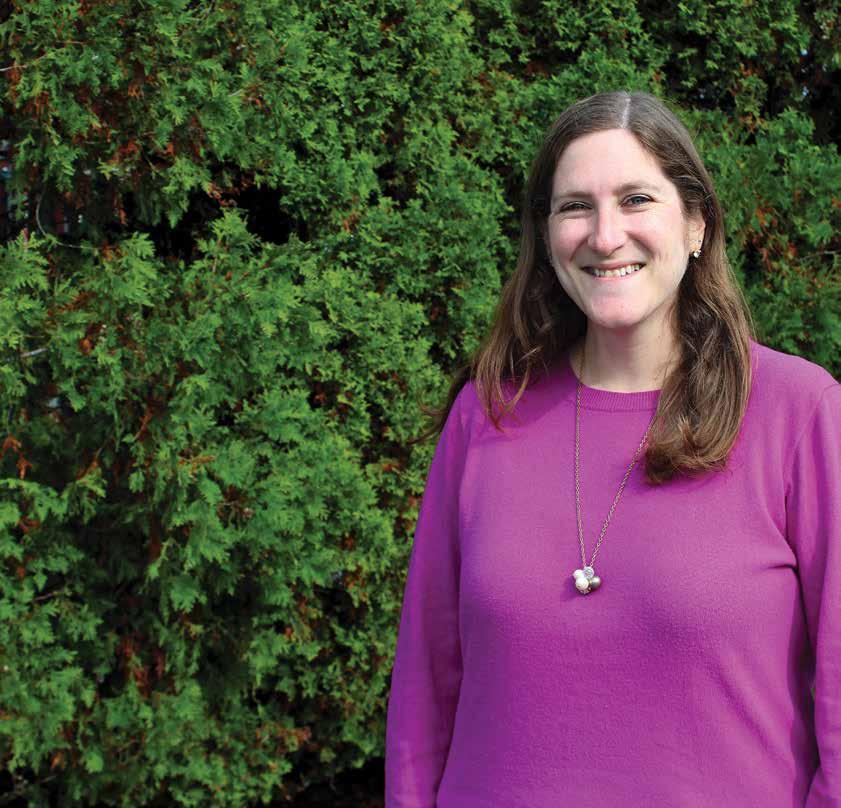WHEATON
Celebrating our ninth president and next chapter

 Jayne M. Iafrate
Jayne M. Iafrate



 Jayne M. Iafrate
Jayne M. Iafrate

Students, staff and local residents walking into a brightly lit Beard and Weil Galleries one Thursday evening in November were greeted with a feast for the eyes and imagination. Long tables strewn with an explosion of fabric, yarn, buttons and an assortment of other crafting material invited the multigenerational group to come in, play and make a meaningful African wrap doll.
The workshop was offered in conjunction with the “What Only You Can Make: The Art of the African Wrap Doll” exhibition that ran during the fall semester, in partnership with the National Black Doll Museum of History and Culture.
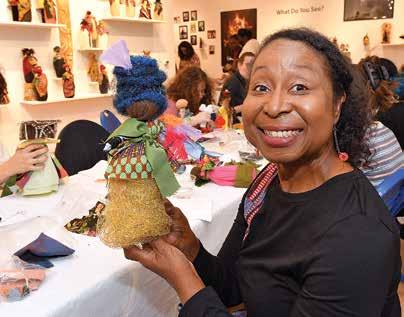
Museum founders Debra Britt and Felicia Walker led participants, including myself, in creating an adaptation of dolls based on the techniques of a traditional art form rooted in 18th century African American culture and a specialty of the museum.
Britt is a masterful storyteller, who demonstrates the technique while sharing her story and that of the dolls. It was truly inspiring to listen to her talk about how her grandmother introduced the form to her as a way of helping her steel herself against hurtful comments she received while a young girl in school.
Her overall message encourages resilience and courage to know your worth. She presents this gift of empowerment in
a tangible and creative way through the making of dolls that serve as reminders to trust and believe in oneself.
Check out the group photo of the workshop in Campus Scene on Page 19 and go online to see a gallery of photos of the dolls created by participants. Each one is as individual and as beautiful as the makers themselves.
One of the best things about inspiration is the element of surprise; we never know when or where it will strike, or who will provide it. And even if it strikes in the same place, it can lead to many different destinations.
In this issue of the magazine, we have profiles of two alums that illustrate the point. William
Richards ’04 and Michael Sheehy ’98 surprisingly both experienced “aha” moments in libraries. However, where they ended up professionally is very different. Take a look on Page 20 and Page 28.
And speaking of libraries, the Boston Public Library was one of the spots for our inspirational community to gather during a November cocktail party celebrating Wheaton’s ninth president, Michaele Whelan, and our next chapter. The college also hosted get-togethers in Washington, D.C., and New York City as part of the ongoing Tradition and Transformation events.
It has been nice seeing so many smiling faces in photos around the country. Check out the cover story on Page 24.
Enjoy.
Have a comment? Email us: magazine@wheatoncollege.edu
Vol. 113, No. 1
Director of communications and magazine editor
Sandy Coleman

Designer
David Laferriere
Multimedia producer
Keith Nordstrom
Associate director of communications
Laura Pedulli
Administrative assistant
Ellen Cataloni
Assistant vice president of marketing and communications
Michael Graca
Vice president for marketing and communications
Gene Begin
Wheaton, The Magazine of Wheaton College (ISSN 1068-1558), is published three times a year (winter, spring and fall) by Wheaton College and printed by Lane Press of Burlington, Vt. Periodicals postage paid at Norton, Mass., and additional mailing offices. Postmaster: Send address changes to Wheaton College, Norton, MA 02766. Wheaton College © 2023
One of the best things about inspiration is the element of surprise; we never know when or where it will strike, or who will provide it.
The Wheaton community has made great strides in regaining its characteristic vibrancy this fall. While we remain ready to mitigate threats to campus health, Wheaton students, faculty, staff, alumni, families and friends are creating community and connection—learning from, listening to and enjoying each other’s company.
Our recent Winter Fest on the tree-lit Dimple with students’ ice sculptures and music, a craft fair and food trucks, was such a celebratory time. As the past twoplus years demonstrated, this gathering of communities is essential.
In October, the college welcomed Patty Kaishian ’13, now a visiting professor of biology at Bard College, to present the LaDonne Heaton Schulman ’57 Alumnae/i Lecture. During her visit, Kaishian not only described her research on the evolution and ecology of fungi but also her journey to becoming an expert in the field who has named new fungi. She even led students on a field trip to Wheaton Woods to find and identify mushrooms growing there. Students were fascinated by her achievements, her evident passion for fungi, and the decisions that led her to return here.

Another alum who returned to campus was J D. Fergus, Class of 2001, who talked with education students about creating a positive classroom learning environment. Fergus serves as the network managing director of equity and restorative practices at a Boston charter school and as the lead trainer at the Center for Restorative Justice at Suffolk University in Boston. And there were many more alum visitors, including an actor, a scientist, a museum educator, an English teacher and an entrepreneur.
Creating more opportunities for these vital kinds of student-alum interactions is a key recommendation of the college’s Experiential Learning Task Force,
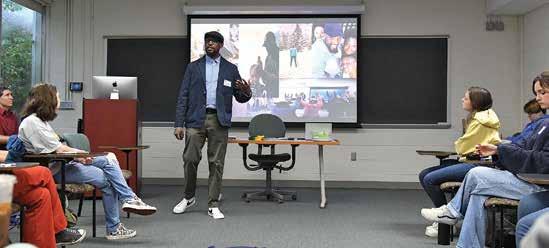

composed of faculty, staff and trustees. The vision is that you—our alums, parents, families and friends of the college— will play a vital role in helping students to imagine and chart their future. Students want to know about your majors, your careers and your decisions—what you did, how you did it, what steps you took along the way—and what steps you wish you had taken! Eager to learn from you, they appreciate the insight you have gained. In the semesters ahead, the college will be working on plans to hire and build the formal systems and infrastructure to involve more members of our extended
community in offering career guidance and life-planning insights to students. In some cases, this will involve alums visiting campus; in others, it may mean coming to a class, or welcoming an interested student for an informational interview. As a result of the pandemic, we have seen that so much of this can be done via technology, and this opens up opportunities for more alums to be involved.
I’m excited about helping our students see the abundant range of possible connections that exist between their studies today and their lives in the future. I’m incredibly grateful to those alums and friends who are already serving as mentors, advisors and campus speakers. And at the inaugural events I am holding across the country, I see that many more members of our community would welcome the chance for such meaningful interactions with our students and other alums. I hope that you will consider the ways in which you can support this initiative, and that you will be ready to extend your hand when the college reaches out for your support in this Wheatie-to-Wheatie endeavor.
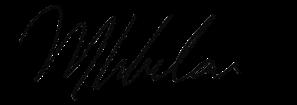
The new full-time, paid internship program places rising sophomores, juniors and seniors in summer internships with entrepreneurial ventures having a social impact in Providence, R.I. It was established through the philanthropic support of the Malloys, who are the parents of a Class of 2022 graduate. Kendra Malloy also is a member of the Wheaton Board of Trustees.
Chris Bennett ’23, Ariel Ferreira ’24, Sara Giraldo ’24, Jack Luyrink ’23, Julianne Morse ’24, Khushi Parikh ’25, Xiulie Perry ’24 and Jacob Veilleux ’24 were selected as Social Venture Scholars based on their outstanding academic achievement, on- and off-campus leadership experiences and commitment to the
intersection of business and social impact, said Imran Chowdhury, Diana Davis Spencer chair of social entrepreneurship, who oversees the program.
“They all share a common interest in making the world a better place by creating positive impact through social enterprise, entrepreneurship and business,” said Chowdhury, associate professor of business and management.
For example, Ferreira, who is double majoring in business and management and political science, said she wants to create an enterprise that helps those in need break the cycle of poverty. She interned as a workforce development intern at Amos House in Providence, which is
a nonprofit that serves those without homes, those who are unemployed and individuals living in poverty.
“My long-term goal is to have a career path where I can work toward creating innovative change to help diminish poverty and income inequality,” said Ferreira, who is president of the Social Impact and Innovation Club at Wheaton.
“I firmly believe that this internship experience is one of my first steps down this path as I am learning more about the population I hope to work with firsthand on a day-to-day basis,” she said.
The program gives Wheaton students an opportunity to gain work experience in a startup or social enterprise environment while receiving mentorship and support from their host supervisors and building skills in many areas of expertise.
The college partnered with Social Enterprise Greenhouse (SEG) in Providence, which managed placements for students, arranged networking opportunities and coordinated seminars designed to help
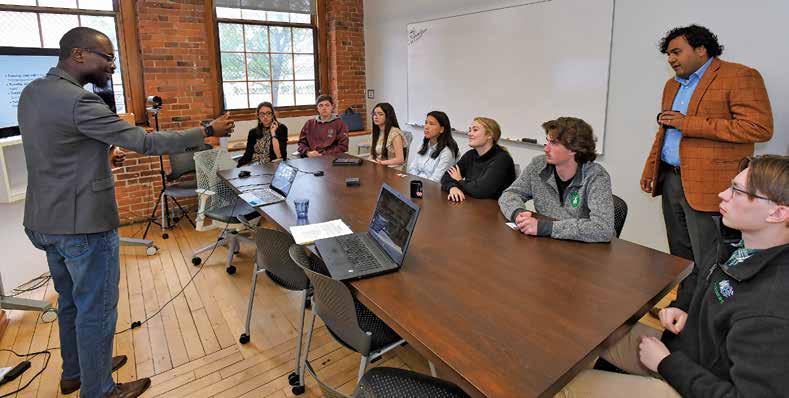
interns understand the world of work and their own professional aspirations.
SEG supports entrepreneurs and businesses committed to positive societal and economic change. The location served as a home base for Wheaton interns to gather as a group for orientation as well as for reflection throughout their experience, which included engaging in conversations with mentors and participating in events from May through August.
“At SEG, we see university partnerships like the Social Venture Scholars program as a vital exchange between our network of social entrepreneurs and the unique resources of institutions like Wheaton,” said Austin Wilson, SEG

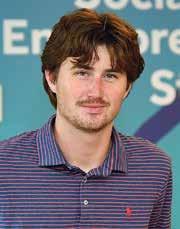
senior program manager.
“On the one hand, students are given the opportunity to gain real-world experiences with social enterprises addressing critical issues in their communities. On the other, organizations in our network benefit from the diverse range of skills and experiences that Wheaton students bring to their work from their liberal arts education,” Wilson said.
The interns represent several majors, including English, political science, international relations, economics and sociology, as well as business and management. Some of them worked on-site at businesses and organizations; some worked remotely or did a combination of

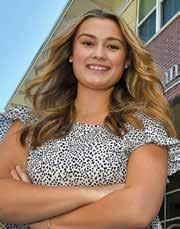

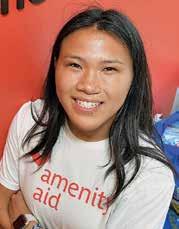
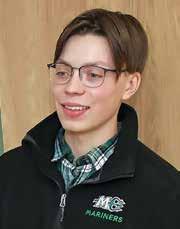
both. They all said they gained valuable skills that expand upon their Wheaton education and leadership on campus, and support their career aspirations.
Professor Chowdhury said that the inaugural program has gotten off to a great start and that he is thankful for the generous support from John and Kendra Malloy.
“We are thrilled that they helped to make such a big difference in the professional and personal development of this first cohort of the program,” Chowdhury said.
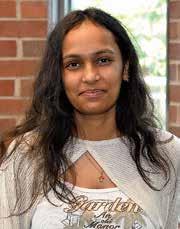 —Sandy Coleman
—Sandy Coleman
Read about each student’s experience online.
Junior Anda Brown’s independent major in quantitative criminology encompasses many of her academic interests and passions, including data science, psychology, sociology and political science. Her 2022 summer internship at Boston Regional Intelligence Center—which gathers intelligence and data to prevent and reduce violence in the city—complemented her major and long-term aspiration of working at the Federal Bureau of Investigation (FBI). Background check: “This internship gave me firsthand experience in data analysis, which is a large part of my major. It gave me lots of connections and a background understanding that will benefit me when I pursue my goal of being in the FBI. … I’ve been fortunate enough to develop a professional relationship with the FBI representative at the Boston Regional Intelligence Center and I have learned a lot from him.” Close inspection: “I looked at [law enforcement] daily bulletins, which highlight the important crimes and problems that have happened in the last 24 hours, and made a redacted version for the private groups we worked with. I started the 10 a.m. conference call where each district and surrounding cities share information on cases. We also made bulletins, such as wanted bulletins. and identification wanted, missing and BOLOs [be on the lookout] notifications. We tracked non-fatal stabbings and motor vehicle larcenies, shoplifting and certain suspects.” A major development: “I began to notice a pattern in the reports. ... I brought this up to a supervisor and she encouraged me to do a write up, which led to it being published in the Law Enforcement Sensitive Daily, with my intelligence notes as well. Then, later, another incident with the same pattern was reported again. This time I started to get deeper into the research with our various databases and put together a timeline and mapping document with a suspect I had discovered. … It’s so cool because I felt like I was doing something of significance that will actually make a difference within the department.”
—Laura PedulliGo online to read about other summer interns:
• Alexander Burrows ’24 , National Institutes of Health
• Erica Drufva ’23, Latina Republic
• Kaylin Fortes ’23, Neponset River Watershed Association
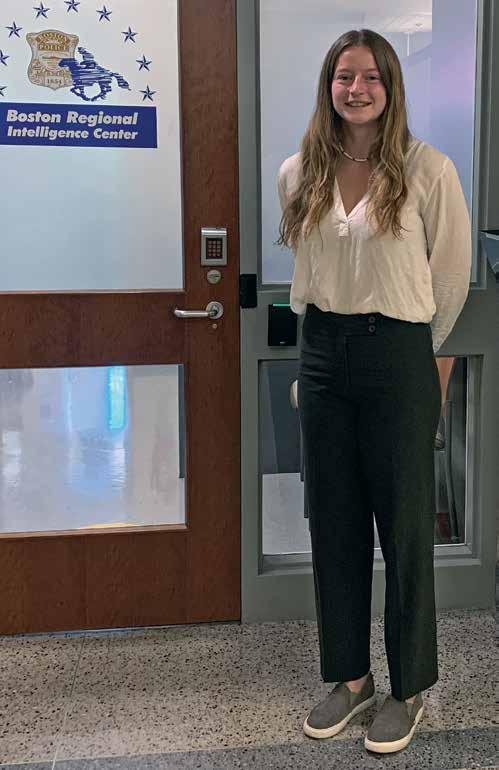
• Kayla Heideman ’24 , Rhode Island Hospital
• Alexandra Zieselman ’24 , Oldcastle Theatre Company

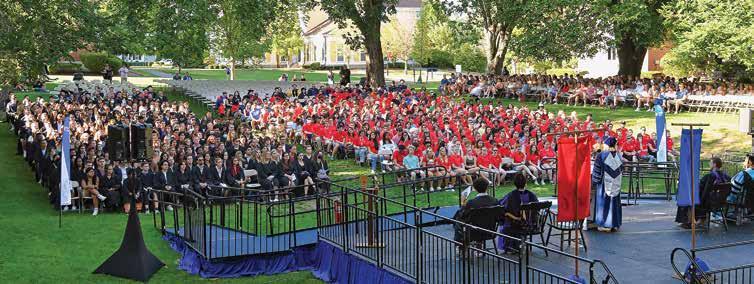
The campus teemed with energy as students arrived for the start of the 2022–23 academic year in August. Students were welcomed with smiles and help from classmates, staff members and President Michaele Whelan as they moved into their residence halls. After settling in, students took part in some college traditions, including a welcoming ceremony for first-year and transfer students featuring Whelan and other campus leaders; and a candle-lighting on the Dimple as part of Chapel Night. On the first day of classes, the campus community came together for Opening Convocation. This year’s keynote address, “Living Democracy,” was delivered by Professor of Practice Nick Dorzweiler.
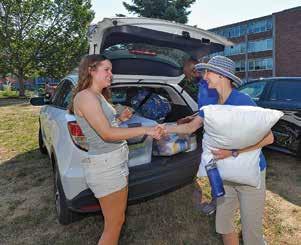
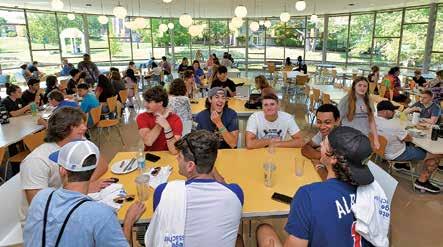 —Laura Pedulli
—Laura Pedulli
Wheaton in fall 2022 received several accolades from Money magazine, The Princeton Review and U.S. News & World Report for its high-quality affordable liberal arts education that leads to successful careers for graduates. The rankings in particular recognized the college’s state-of-the-art laboratories, its equity in providing access to opportunity, as well as its inclusive community.
Money magazine included Wheaton in its Best Colleges in America 2022 in the No. 40 spot on the Best Liberal Arts Colleges list.
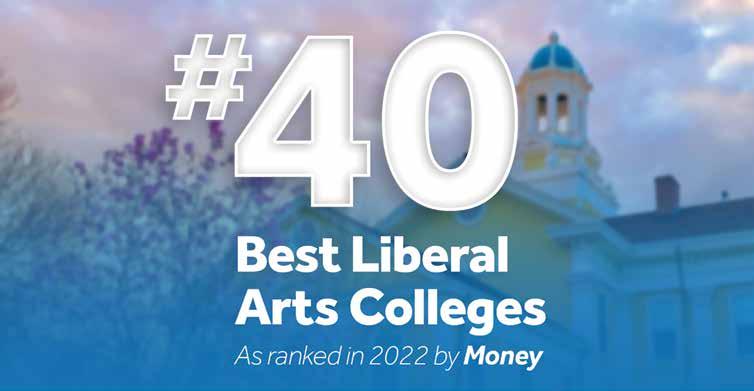
Money’s Best Colleges in America 2022 ranks colleges by value to find schools that combine quality, affordability and outcomes, according to its website. The 2022 rankings were compiled by examining 671 four-year colleges that met several requirements, including having sufficient
data and above-average graduation rates for analysis. Twenty-four factors in the three categories were then considered.
The quality category focuses on graduation rates. Affordability considers the net price of a degree, student and parent borrowing, and loan repayment rates. Outcomes takes into account median earnings, the share of alumni working and the share of alumni earning more than a high school graduate.
The Princeton Review’s The Best 388 Colleges: 2023 Edition included Wheaton on its overall list and also placed Wheaton No. 16 nationwide for Best Science Lab Facilities and No. 21 for being LGBTQ-Friendly.
The Princeton Review rankings are based on 160,000 surveys that asked students to rate their professors, administrators, school services and other aspects of life at their colleges and to report on their campus and community experiences.
Wheaton earned multiple accolades in the U.S. News & World Report 2022–2023 Best Colleges rankings that were announced Sept. 12, 2022. The college is ranked No. 89 nationally among liberal
arts colleges.
Wheaton is included on the lists as a Best Value Liberal Arts College (No. 64) and among the Top Performers for Social Mobility (No. 81). The latter ranking measures the extent schools enrolled and graduated students who received federal Pell Grants. (Usually, the students come from lower-income households.)
Wheaton also made the list of A-plus schools for B students, which notes colleges with strong rankings that accept students who have a range of test scores and GPAs. Wheaton has been a test optional school for more than 30 years.
A guide for prospective students and their families, the latest rankings assess nearly 1,500 U.S. bachelor’s degreegranting institutions on 17 measures of academic quality. To calculate the rankings, U.S. News & World Report “focuses on academic quality and places emphasis on outcome measures—including graduation rates, retention rates, graduate indebtedness and social mobility. Outcomes are the mostly highly weighted ranking factor,” according to a media release.
—Sandy ColemanThe Gertrude Adams Career Design Studio is a busy place in the Filene Center for Academic Advising and Career Services. Named in honor of the mother of Adrienne Bevis Mars ’58, students come here to get advice and tap into resources. Ready to help them is a team of career peer advisors led by Audrey Spina ’17, career advisor in the Filene Center. Student advisors, who specialize in areas of focus that connect to their own career interests, assist classmates with cover letters, resumes and strategies for securing jobs, internships and other career-related experiences. During the fall semester, Spina conducted a training session for the
The advisors are: (standing on the floor) Emily Butler ’24, Gabe Fellows ’23, Audrey Spina ’17, Dominic Mongillo ’23, Nicole Janeiro ’23, Katie Vidic ’23 and Brennan Parker ’24; (second row) Kayley Tullgren ’23, Khushi Parikh ’25 and Rian Sachs ’23; (third row) Kaila Riddle ’23, Carolina Fernandes ’23, Saksham Agarwal ’23 and Alex Burrows ’24.
group. Peer advisors also receive professional development and additional training once a week throughout the academic year on topics such as the world of work and communication, the basics of financial health, networking and digital career resources.
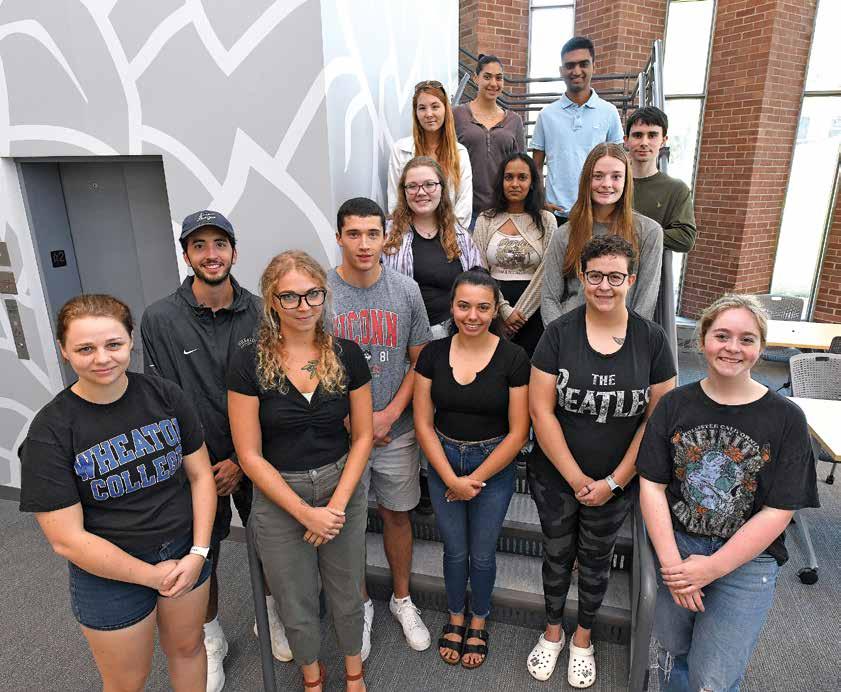
On a steamy summer afternoon, zinnias, forget-me-nots, marigolds and other flowers were in full bloom near Wheaton’s outdoor tennis courts.
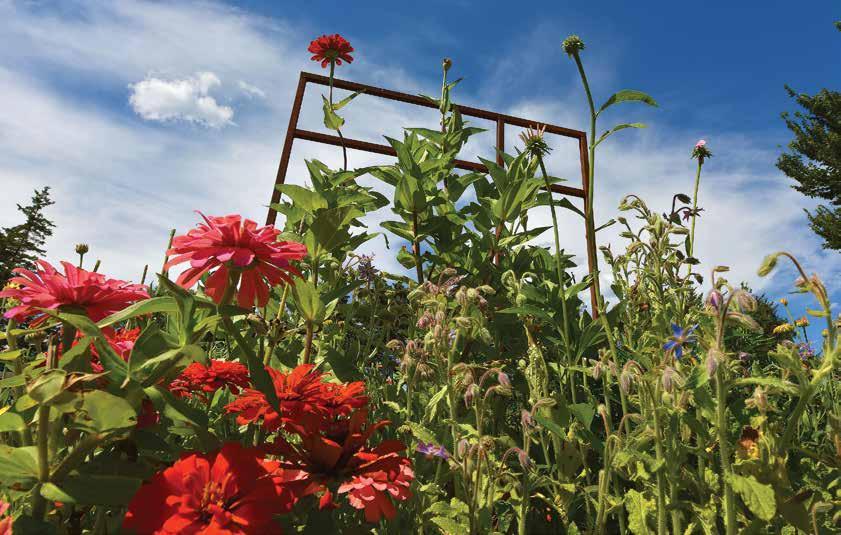
Surrounded by drought-stricken grass, the colorful flowers stretched toward the sky from a rectangular box designed in the tight footprint of a traditional solitary confinement prison cell.
The resilient and hopeful nature of the garden is exactly what Beard and Weil Galleries Director Elizabeth Hoy envisioned when she began a collaboration with artist Jackie Sumell and invited students, staff and faculty to help create the Garden for Incarcerated Mothers at Wheaton.
Wheaton’s garden is a version of the Solitary Gardens project founded by Sumell, whose art and advocacy focuses on those impacted by mass incarceration. The artist’s project pairs individuals in solitary confinement with people on “the outside” to create a garden together.
“Our garden is a little different, as we are creating a flower garden for incarcerated moms,” Hoy said. “Eighty percent of incarcerated women are mothers. We are connecting with mothers at the Massachusetts women’s prison MCIFramingham, with the help of [Roxbury, Mass.-based] Families for Justice as Healing, a nonprofit led by incarcerated and formerly incarcerated women and their loved ones.”
“The women who are participating chose one of 12 flowers that they feel represents them. We are sharing images of our flowers and garden as it grows,” she said. “There are a few other gardens for incarcerated mothers across the country; each garden has the same flowers.”
Hoy added that Wheaton’s project has several goals: “to create empathy for and connection with people who are currently or formerly incarcerated; to build a greater understanding of the systems of
oppression that have created this carceral state; and to support the Wheaton community in considering what criminal justice is as an academic subject.”
Conary “Nicky” Howard-Rogers ’23, a biochemistry and visual art double major, created a metal gate that is at the head of the garden as part of an independent study in public art.
“I was initially asked by Elizabeth to help out with some metalwork for a project. When I found out that I was working on the garden installation, I became pretty interested in the whole concept and the messaging behind the art,” Howard-Rogers said. “My own artwork commonly explores areas of social change focused around the climate. It was really interesting to get to do art that focused on a different form of social change.”
—Sandy ColemanWheaton’s Compass curriculum aims to help students make connections between knowledge and practice, so they are equipped to take on the careers of tomorrow.
Liberal Education and Professional Success (LEAPS), one optional component of Wheaton’s Compass curriculum, provides a pathway to assist students in identifying and developing in-demand skills in various fields.
To date, Wheaton has approved LEAPS in the following areas: content marketing; criminal justice and criminal justice reform; design and fabrication; food industry: food science, business, language and culture; galleries, libraries, archives and museums; global fashion industry; social research; and teaching second languages. Students who sign up take courses, engage in experiential learning and enjoy mentorship from the Wheaton community, including alumni.
Haley Luce ’24, who signed up for the LEAPS in galleries, libraries, archives and museums, said she first learned about this opportunity through Associate Professor of Museum Studies and History of Art Leah Niederstadt and Dean of Library Services Megan Brooks.
“My professional goals lay in between museum work and academia in the field of classics, my major. Knowing that there is a middle ground that I can work on strengthening at Wheaton inspired me to sign up,” Luce said.
Over the summer, she took “Introduction to Museum Studies” with Niederstadt. For the LEAPS-required experiential component, she worked in the college’s Permanent Collection, which

holds more than 8,000 objects. Among other tasks, including rolling textiles and rehousing medieval stained glass, she traced the ownership history. She also got to trace the history of ownership of ancient Greek ceramics, determining that they originally were given to Wheaton in 1931 by the Metropolitan Museum of Art. The museum had a surplus of pottery that was donated by the Greek government in 1930 following an excavation in Athens, Greece.
“Stories like this fascinate me, and the chance to be able to uncover them myself is something that I find truly irreplaceable from my time here at Wheaton. Professor Niederstadt, the professors of the Classics Department and the library staff have been the most supportive academic resources I have ever had,” Luce said. Mentorship is another key part of a LEAPS program. Greta Phillips ’09,
an English as a Second Language (ESL) teacher with more than 10 years of experience at Newton Public Schools, said she was thrilled to find such a unique way to give back to Wheaton and stay connected. As the program builds, she hopes to serve as a resource for students. Earlier this year, she discussed her career and experience with students in an education course over Zoom.
“I know as a student I would have enjoyed being connected to alumni in a field of interest and hearing real experiences from past grads,” said Phillips, who majored in Hispanic studies. “The ESL career is a very fulfilling one. There are lots of opportunities working in public schools K–12 in many different ways, all of which make a big impact on students and their families.”
—Laura PedulliThree years ago, Professor of Visual Art Leah Dyjak began capturing photos that showed the failure of infrastructure to mitigate the impacts of climate change— particularly in Southern Louisiana, the area surrounding New Orleans.
After a few pauses in the project—in part due to the COVID-19 pandemic— Dyjak is getting a significant boost to continue the photography compilation, thanks to a prestigious three-year, $35,000 unrestricted grant from the George A. and Eliza Gardner Howard Foundation.
The foundation, administered at Brown University, awards a limited number of fellowships each year for independent projects in selected fields. Grants are awarded to professionals in the field of photography every five years.
Dyjak’s project, titled “As we play
God,” explores the failure of risk reduction infrastructure, such as levees, to prevent environmental devastation caused by climate change. The work also explores the economic and spiritual cost of catastrophes such as levee breaches and flooding in communities in Louisiana.
The grant will allow Dyjak to travel to Louisiana to conduct research from both a sociological and environmental perspective.
“Part of what I started to look at before COVID-19 was the way that the levee system was built—both in the past and more recently. Many oil refineries are built on old plantations, so there’s a very clear delineation about who’s inside the ring, and who’s outside the ring. Essentially, if you’re outside of the ring, it means that your home, business or
community, within the next five to 10 years, is in extreme danger, if not right now,” the professor said. “I am interested in the psychology of how these policies get implemented, who decides around how this water infrastructure was built, and whose interests are really being protected.”
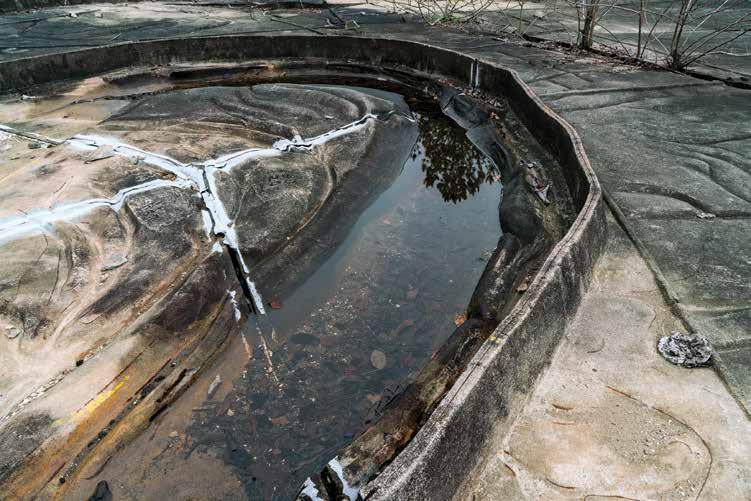
The professor said winning the grant is incredibly validating.
“It’s a great feeling that my work is really taking off. It has really helped me transcend the limits of what I thought was possible. I think it is really important in terms of my teaching and how I’m able to support students in thinking big,” said Dyjak, who hopes that students will be inspired to see that anything is possible if you work hard and stay committed.
—Laura PedulliProfessor of Music Delvyn Case treats every student who walks into his “Introduction to Composition” class as a composer, whether or not they have ever written a note.
“I tell them that we are all on the same journey of learning how to compose, but just at different points,” he said. “The difference between them and me and Mozart is in the degree to which we all have mastered the art of composition, not whether we are composers.”
Case has hit a high note on his journey. He was named Distinguished Composer of the Year by the Music Teachers National Association (MTNA) for his piece “Psalms of Ascent,” a five-movement instrumental suite inspired by the biblical Psalms 120 through 134. These Psalms, known as the “Songs of Ascent,” are believed by scholars to have been used by Israelite pilgrims as they journeyed to Jerusalem
for religious festivals, he explained.
The award is given to the composer with the strongest composition out of all the works commissioned by MTNA state affiliates in a given year. Receiving this honor, which came with a $5,000 award, is particularly meaningful to Case.
“I was recognized for the very thing I teach at Wheaton, and from a group of my peers who are also composers and teachers,” he said.
The suite was commissioned by the Maine Music Teachers Association, which was an additional honor, said Case, who grew up in the state and maintains musical connections there.
Case, who has taught at Wheaton since 2010, hopes his award can serve as inspiration for students. In addition to composition, he teaches classes on music theory, songwriting and the history of popular music.
He also is the music director of the Great Woods Symphony Orchestra, an ensemble based at Wheaton that includes members of the college community and the general public. On June 23, 2022, Case was the conductor for the Symphony Under the Stars event held in the Presidents’ Garden.
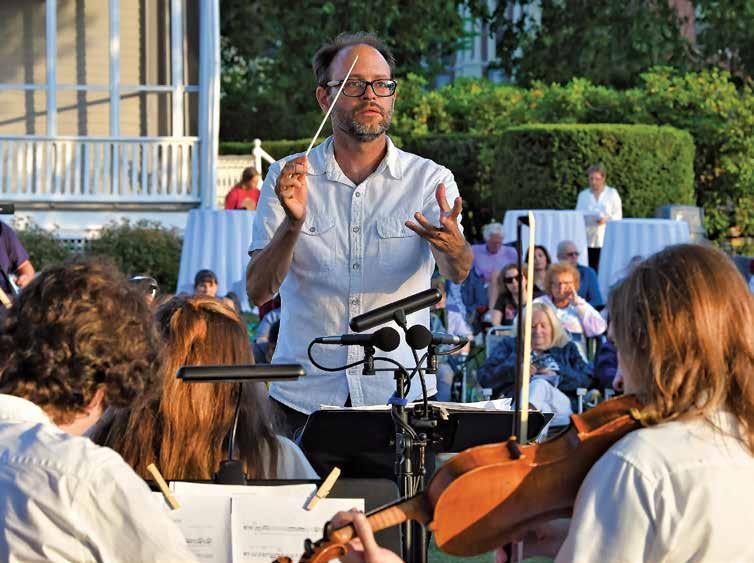
Case said he is grateful for the summer research award from the college that funded a professional video recording of “Psalms of Ascent” by the Boston-based ensemble Hub New Music.
“The college supports its students and faculty in numerous ways, resulting in the creation of hundreds of new works every year—from student poetry to faculty compositions,” he said. “The result is a campus where the arts are not only celebrated in principle, but also in practice.”
—Mary Howard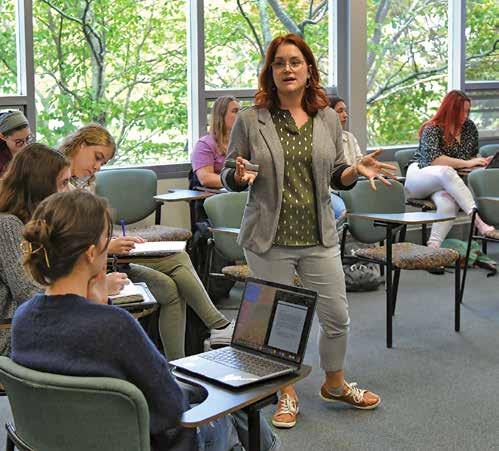
Assistant Professor of Education
Alessandra Ward, a former elementary school teacher, believes that social and emotional learning (SEL) is crucial to academic success, personal growth and well-being for K–12 students. During the fall semester, the professor taught “Transformative SEL,” a new course specifically designed for Wheaton students who are considering a career in education, but also open to others. Wheaton magazine editor Sandy Coleman asked her about the course.
What is social and emotional learning?
“According to the Collaborative for Academic, Social, and Emotional Learning [the nation’s most prominent SEL organization], social-emotional learning is ‘the process through which all young people and adults acquire and apply the knowledge, skills and attitudes to develop healthy identities, manage emotions and achieve personal and collective goals; feel and show empathy for others; establish and maintain supportive relationships; and make responsible and caring decisions.’”
Why is it important to gain an understanding of SEL—especially now?
“With so many children and adolescents experiencing social isolation, the pandemic highlighted for so many how social and emotional learning is crucial for students’ well-being. In the wake of the deaths of George Floyd and others too numerous to name, and the nation’s long-overdue reckoning with issues related to diversity, equity, inclusion and belonging, a transformative approach is essential.”
How is the course transformative?
“Transformative SEL is a particular lens on the topic, originally developed by [psychologist] Robert Jagers and colleagues, that centers on equity and justice. In the course, we talk about
how we learn to recognize and act on issues of injustice, how structures and systems influence individuals’ behavior, and how our cultural practices affect what we care about and how we express ourselves. We examine how things like race, income level and gender shape social-emotional development and how to create environments that help everyone feel like they belong.”
How can the course benefit students from a variety of majors?
“This is a foundational course in education, which means one of our focuses is learning how to support K–12 students in their social and emotional development. We learn the basics of lesson planning, how to teach SEL in ways that are antiracist and culturally responsive and how
teachers can engage with families and communities to collaboratively support students’ SEL. These skills are particularly helpful for future educators, but also can be useful to students who take other kinds of leadership roles with their peers, children and adolescents.”
“I hope that every student who takes this course, regardless of major or interest in education, walks away with a deeper understanding of their own social and emotional development, including how it was—and continues to be—shaped by constructs such as race, culture, class and gender, and a greater respect for ways of interacting socially and emotionally that are different from their own.”
Jonathan Brumberg-Kraus, professor of religion, was interviewed for the podcast “Judaism Unbound, Episode 319: Culinary Midrash,” in March 2022.
John Collins, professor of physics, co-wrote the article “Formulation of Radiative and Nonradiative Transitions of a Polyatomic System within the Crude Adiabatic Approximation,” published in August 2022 in Optical Materials X .
Jonathan Chow, assistant professor of political science, wrote the chapter “Catholicism and Human Dignity in the Philippines” in Human Dignity in Asia: Dialogue Between Law and Culture (Cambridge University Press, 2022).
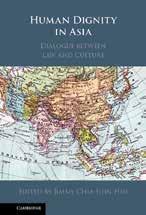
Tommasina Gabriele, professor of Italian studies, won the 2022 Forum for Modern Language Studies Prize Essay Competition presented by the Forum for Modern Language Studies. The award was for her essay “Queering the Textual Politics of Alba de Céspedes’ Prima e dopo” for the theme “Challenging Literature.”
Scott Gelber, professor of education, wrote the article “‘We Are Gonna Miss Too Many of Them’: Rurality, Race, and the History of Grow Your Own Teacher Programs” in the American Journal of Education, published in November 2022.
Christopher Kotyk, assistant professor of chemistry, co-wrote the article “Mechanochemical synthesis of thiolactams and other thioamides using Lawesson’s reagent” in the journal Results in Chemistry in September 2022. Matthew Goodwin ’21 and Meggin Costa ’20 also were co-authors.
Ellen McBreen, professor of the history of art, contributed two essays to Matisse in the 1930s (Yale University Press, 2022). She also was a featured speaker at the Irma and Herbert Barness Endowed Lecture “Matisse, the Model & the Studio” at the Philadelphia Museum of Art via Zoom in November 2022.
John Miller, professor of economics, continued to write his column “Up Against the Wall Street Journal ” and feature articles for Dollars & Sense Magazine. In 2022, he wrote: “The Fed and the Racial Wealth Gap: Will a Fed racial inequality mandate improve monetary policy?”, “New Tools of the Fed: How monetary policy has changed since the financial crisis,” “The Great Resignation and the Labor Shortage: What makes 2022 a great year for a job makeover?,” “Inflation is Surging: round up the usual scapegoats,” “Two ‘Bad’ Tax Ideas Are Better Than One: Why we need to tax stock buybacks and close the carried interest loophole” and “Globalization in Crisis: Is neoliberalism on the ropes?”
Montserrat Pérez-Toribio, associate professor of Hispanic studies, co-organized and co-directed The Sixteenth Biennial Symposium of GEMELA: Women’s Words
Beyond Borders, held at the University of Valencia, Spain, in October 2022.
Tommy Ratliff, professor of mathematics, collaborated on the analysis and article “Newly gerrymandered districts might hurt Democrats less than you think,” published in the Monkey Cage blog in The Washington Post in September 2022.
A. Javier Trevino, professor of sociology, co-edited Leon Petrażycki: Law, Emotions, Society (Routledge, 2022).
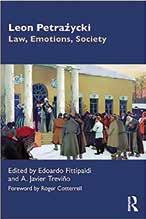

Aubrey Westfall, associate professor of political science, wrote The Politics of Immigration in Scotland (Edinburgh University Press, 2022).
Steve Desroches ’96 wrote “The Art of Drag: A History,” a comprehensive story about the century-long history of drag queens in Provincetown, Mass., for Provincetown Arts magazine.
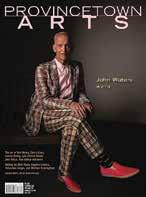
Benjamin Fields ’22 received a 2022 SETI Forward Award, which recognizes outstanding undergraduate interns studying astrobiology and SETI Institute research.
Alexandra Marshall ’65 wrote the memoir The Silence of Your Name: The Afterlife of a Suicide (Arrowsmith Press, 2021).
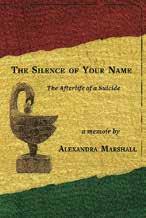
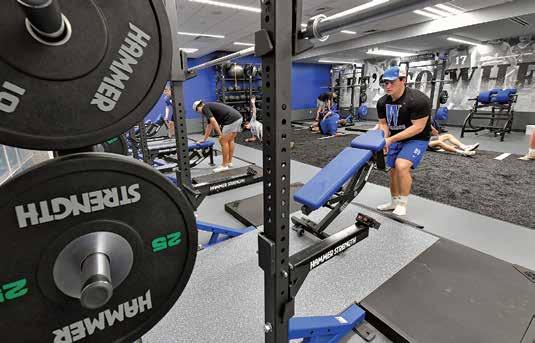

A $2.3 million donor-funded renovation of Haas Athletic Center has been completed, enhancing the Wheaton experience for student-athletes as well as the entire campus community. In addition to overall infrastructure and HVAC improvements, some of the key upgrades include: a greatly expanded 1,800-square-foot strength and conditioning center for team workouts and training; the Marcus Family Film and Media Room for staff and teams to discuss and review tactics and strategies; an updated lobby area and office suites; and improved landscaping.
Supporting student-athletes has been important to their success both in the classroom as well as on the playing fields. To build on that success, an anonymous alum and their spouse issued a matching gift challenge to generate contributions to the Catalyst Fund that got this project underway.
After completing his summer 2022 internship, Gabriel Fellows ’23, a member of the men’s soccer team, has been offered a full-time position with Banque Nationale de Paris (BNP) Paribas in New York City.
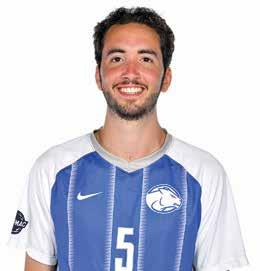
The business and management major is scheduled to start working for the international banking group this July.
We asked Fellows a few
questions about his summer internship and how his experiences inside the classroom at Wheaton and on the soccer field have contributed to his success:
What was your role?
“Investment banking summer analyst in the Energy, Natural Resources and Renewables Coverage group. I supported the team advising corporate
and institutional clients in the industry looking to raise capital for mergers and acquisitions and general liquidity purposes.”
Tell us about the competitive nature of the internship and the Wall Street Exchange Program that you were accepted into?
“BNP Paribas is the largest bank in Europe and the seventh largest by size
Wheaton has added men’s water polo and women’s water polo as the 22nd and 23rd varsity athletics programs at the college.
“Today is a historic day for Wheaton athletics, as we add two new varsity sports for the first time in over a quarter century,” said Gavin Viano, associate vice president for athletics and strategic programs, in making the announcement in August 2022. “With this addition, Wheaton becomes the second school in the NCAA, along with Stanford, to field the sports of artistic swimming, men’s and women’s swimming and diving, and men’s and women’s water polo, at the varsity level. We’re excited to welcome the intercollegiate water polo community to Balfour Natatorium on a regular basis, starting in 2023.”
After a nationwide search, Alana Burgess has been hired as the inaugural head coach for both the men’s and women’s water polo programs.

“Coach Burgess has played and coached
at the highest levels of the NCAA and we are incredibly excited to partner with her to build our varsity water polo program and have her on campus as the leader of our newest teams. The future of Wheaton water polo is bright,” Viano said.
Burgess is one of only four female coaches to lead a men’s program at the NCAA level.
“I am beyond thrilled to be named the head coach,” Burgess said. “I will gladly accept the challenge of building both programs from the ground up, and I am excited to be a part of an athletics
worldwide. The internship had roughly 10,000 applicants, with eight selected. We were then divided into different industry verticals. My eight-person class comprised Harvard, Columbia, Cornell and Brown students. The Wall Street Exchange is a program that selects summer analysts from across Wall Street’s top firms and holds weekly
networking events. Only 60 interns are selected for this program.”
How did your Wheaton education prepare you for this experience?
“Wheaton has allowed me to develop a hard work ethic in the classroom and on the soccer field. Being a part of different clubs on campus helped me find
department with a strong support system and winning culture.”
Burgess most recently served on the coaching staff for the water polo program at Brown University. Prior to working at Brown, she was the head coach for the women’s water polo program at Division I Saint Francis College in New York.
She has a bachelor’s degree in public administration from San Diego State University and was a four-year member of the college’s nationally ranked women’s water polo team from 2008 to 2012.
interests that molded me into a well-rounded, competitive candidate for an industry like investment banking.”
How did being a member of the men’s soccer team prepare you?
“The Wheaton soccer family has helped me every step along the way. My teammates have become my brothers, and I
couldn’t be more thankful for how supportive everyone has been in helping me reach my goals. … Everyone appreciates a strong work ethic. Everything I have learned throughout my time as part of the soccer team [helped in managing] the day-to-day challenges I faced in my internship.”
—Wheaton athletics staff
Friends and Family Weekend, which took place on Sept. 23 and 24, 2022, featured a variety of events and activities, including an Arts Quad Party, Filene Center open house and plenty of delicious treats.
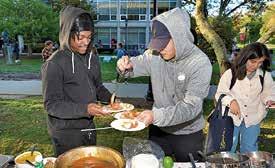
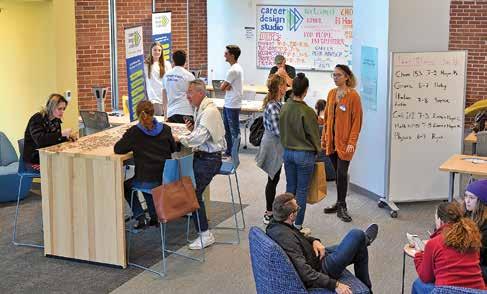

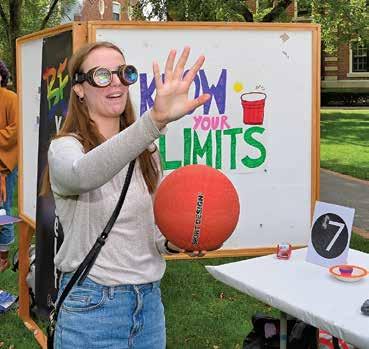
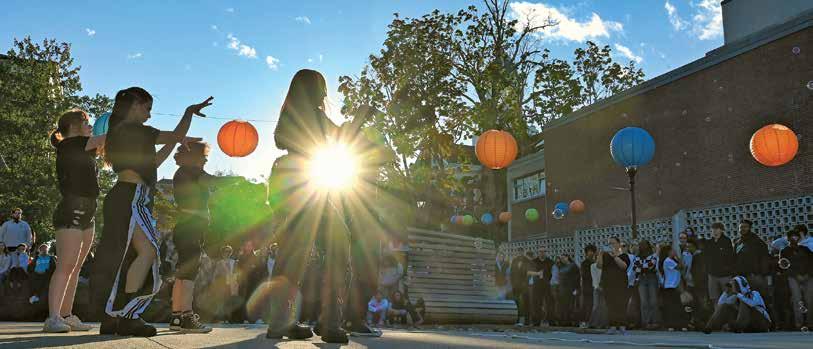
Interactive expo booths, free food, entertainment, prizes and giveaways provided students with a chance to check out resources for wellness during Fresh Check Day on Sept. 30, 2022. The Counseling Center event aims to create an approachable and hopeful atmosphere in which students are encouraged to engage in dialogue about mental health.
Beard and Weil Galleries partnered with the National Black Doll Museum of History and Culture to present “What Only You Can Make: The Art of the African Wrap Doll,” from September 15 through November 5. Based in Mansfield, Mass., the museum is the country’s largest collection dedicated to the art, craft, history and preservation of Black dolls. Two African wrap doll making workshops were held, including one (above) offered in collaboration with the Renaissance House theme residence and the Marshall Center for Intercultural Learning.
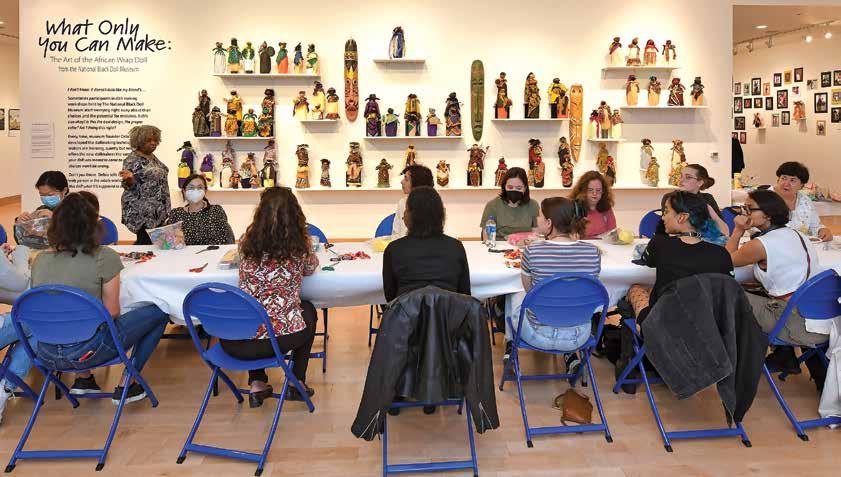
Students enjoyed games, crafts and delicious snacks like mooncakes at the annual Mid-Autumn Festival/Chuseok, which took place in the Balfour-Hood atrium on October 2.
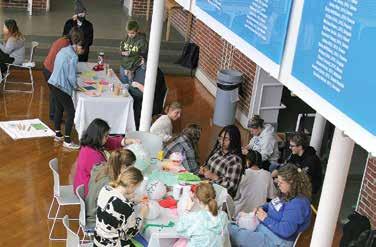
The East Asian Student Association and KAOS co-hosted the event, which is observed in honor of the full moon and the fall harvest.
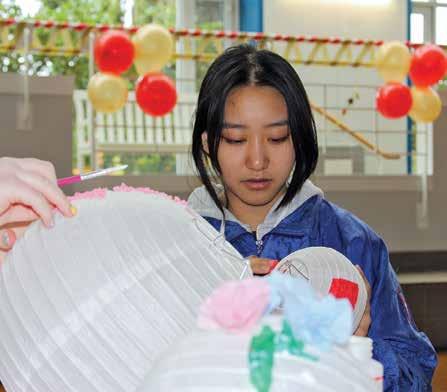
When 14-year-old William Richards ’04 accepted his first summer job as a computer lab proctor, he had no idea it would lead to a lifelong passion. That changed in a moment.
Richards was immediately captivated by the Class of 1945 Library at his high school, Phillips Exeter Academy in New Hampshire. Designed by renowned architect Louis Kahn, the library quietly marries local materials, classical concepts like the golden ratio and soaring spaces that are meant to inspire students. It certainly inspired Richards.
“I spent less time doing my actual job and more time wandering around the library,” he said. “It was the first time I really paid attention to how an architect could make careful, thoughtful decisions about materials and the arrangement of spaces. I had no idea what any of it meant, but at the time I remember being struck by the details.”
His stint there set him on a path in art and architecture history that today includes: an award-winning career in writing about the business, culture and practice of architecture, cities and design; three books on architecture, with a fourth on the way; and an editorial and creative consultancy, Team Three, LLC.
Richards brought all these experiences back to Wheaton in 2021 when he virtually delivered the 13th Annual Mary L. Heuser Lecture. Discussing intentional communities and why the choices we make in living together can enrich the values of the communities we choose, he told current students: “A lot of my work
over the years involves spending a great deal of time with architects, learning about their choices, and seeing evidence of those choices in their work.
“Yes, architects are always working within parameters like budgets and codes. Yes, working with clients can be just as challenging as it can be rewarding. But, architecture is a responsibility and a privilege—and through that privilege, architects influence the quality of our lives.”
Richards was drawn to architecture from an early age. Always close at hand today is his mother’s first edition of H.W. Janson’s History of Art. As a young child he gravitated toward the pictures and
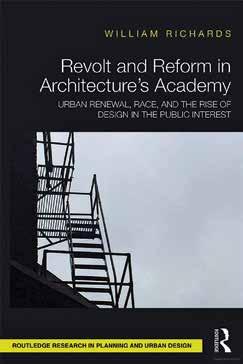
descriptions of temples, cathedrals and building plans. He knew he would pursue a degree in art history well before he identified Wheaton as the place where he would do it.
He spent his final year of high school at Phillips Exeter Academy exhausting all the electives in art and architectural history, as well as searching for a college that would offer him a world-class art history program. He felt that Wheaton fit his needs perfectly: small classes, a favorable student-teacher ratio and the possibility of finding academic mentorship. He found it all, and then some.
“I feel fortunate to call him a friend and peer these days, but honestly it was often difficult to remember he was an undergraduate during his time at Wheaton,” Professor of the History of Art R. Tripp Evans said of Richards, who enrolled in Evans’s senior seminar as a first-year student.
“Bill had an intellectual maturity and curiosity well beyond his years. He gave the seniors in that seminar a real run for their money,” Evans said.
At Wheaton, Richards took a variety of courses across disciplines—from Caribbean Diaspora and Russia’s pre-war avant-garde to astronomy and logic—following personal interests as often as his art history requirements. He embraced the liberal arts curriculum as an opportunity to set his own academic agenda to succeed or fail on his own terms.
“Exploring history through the lenses of art and architecture fueled my curiosity about lots of things, including different styles of writing,” he explained. “Those fields are as much about physical evidence as they are about ideas—paintings,
sculptures and buildings—all illuminated by texts and debates that are mirrors of their times.”
Richards recalled Professor Emerita of the History of Art Evelyn Staudinger as a “mythic figure” at Wheaton, known for her infectious enthusiasm.
“She was important to me because she never let me slide into complacency or laziness,” he explained. “She really helped me see that mutual respect is based in honesty and directness—qualities I really admire and value.”
Professor of Philosophy John Partridge, a mentor to Richards as he completed his
philosophy minor and beyond, remembers meeting him in the fall of 2001 in his “Aesthetics” course.
Partridge describes Richards’s writing style as a blend of “clarity and erudition with wit and charm, all while making accessible complicated theories and
interpretations.”
Those qualities, both academic and personal, transformed not only the student, but also the professor.
“Almost always, we grow and transform in relationship with others, rather than alone,” Partridge said. “When Bill looked to me for mentorship, I found the opportunity to take on a new role. It’s as if he saw more in me than was there at the time; he surely inspired me to grow into something different.”
The two remain in touch today.
Richards went on to earn a Ph.D. in art and architectural history from the
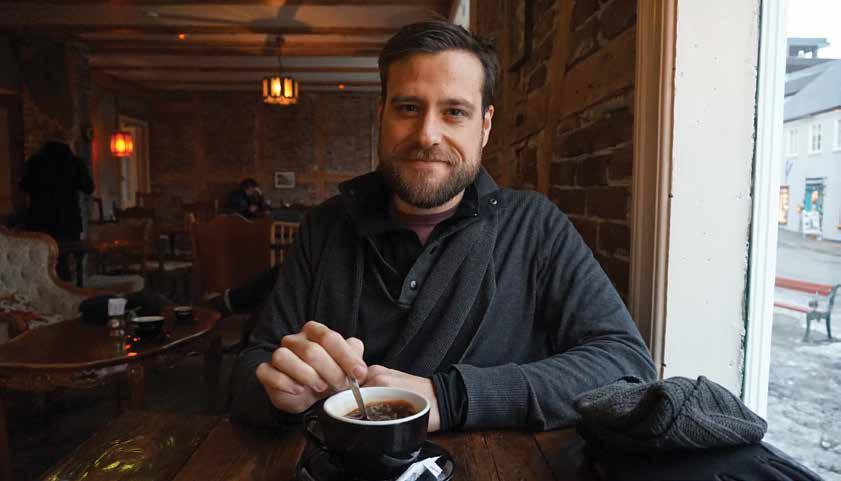
“A lot of my work over the years involves spending a great deal of time with architects, learning about their choices, and seeing evidence of those choices in their work.”
William Richards ’04
University of Virginia, and, as editor of Inform Magazine, published by the American Institute of Architects’ (AIA) Virginia chapter, he established himself as a thought leader within the architectural community and quickly went on to direct publishing and digital content for AIA’s national operation for nearly a decade.
As a writer for national magazines since college (publishing two pieces of criticism for Art New England Magazine), he has focused on the business, culture and practice of architecture, as well as cities, communities and design. Over the past 20 years, he has written for Architect Magazine, Architectural Record, Art New England, Landscape Architecture Magazine, Old House Journal, Residential Architect and The Providence Journal, among other publications, including several academic journals. From 2013 to 2016, he also covered economic trends, personal finance and retirement planning for CNBC personality Jim Cramer, and later worked as the communications director for economic studies at the Brookings Institution in Washington, D.C.
By 2017, Richards published his first book: Revolt and Reform in Architecture’s Academy: Urban Renewal, Race, and the Rise of Design in the Public Interest, adapted from his dissertation at the University of Virginia.
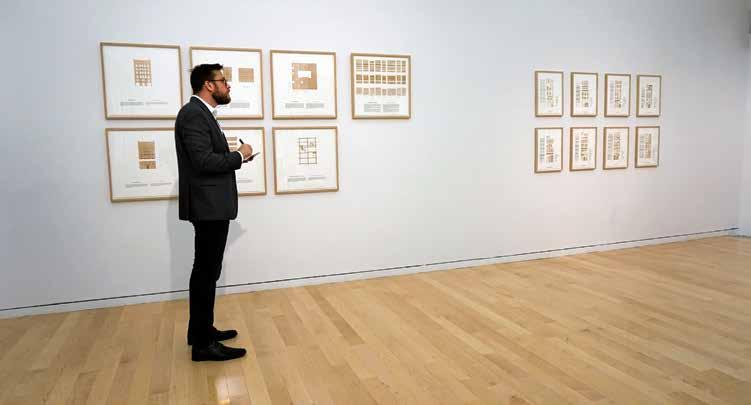
The long format of publishing allowed him to explore more deeply the cultural intersections he first encountered in his studies at Wheaton. Revolt and Reform argues that urban renewal and campus expansion at Columbia and Yale in the 1960s recast architectural education at schools whose host cities, New York and New Haven, were critical sites for political, social and urban upheaval in America. This change, he argues, catalyzed what we call “public interest design” today, or architecture that addresses community participation, equity, health and sustainability.
“Those ideas matter when we find ourselves in an increasingly divisive political landscape, a time when we need to remember our humanity most and find mutually supportive solutions for housing insecurity, structural inequities and environmental injustice for
society’s disenfranchised,” Richards said. “Wheaton gave me the latitude to explore a lot of these ideas while I also started— inadvertently—to build a foundation for the rest of my life.”
Feeling restless and looking for a change, Richards and his wife and business partner, Pascale Vonier—a graphic designer—decided in 2020 to found Team Three, LLC, their consultancy based in Washington, D.C. Their global client list includes private enterprises (including architectural firms), nonprofit organizations, cultural institutions and universities. Team Three helps their clients communicate more effectively, understand their audiences and raise their visibility on issues that matter, Richards said.
In 2022, Princeton Architectural Press published two more of his books, both on architecture and sustainability: Bamboo Contemporary: Green Houses Around the Globe and Together by Design: The Art and Architecture of Communal Living. The field of sustainability is one in which Richards believes architects can play a leadership
role in addressing how the built environment can drive positive climate and social change for communities, streets, cities and regions.
“In designing a building and advising on its construction, for example, architects have influence over the details of design and the values that design represents, which can determine a lot about the quality of our lives as individuals within communities,” Richards explained.
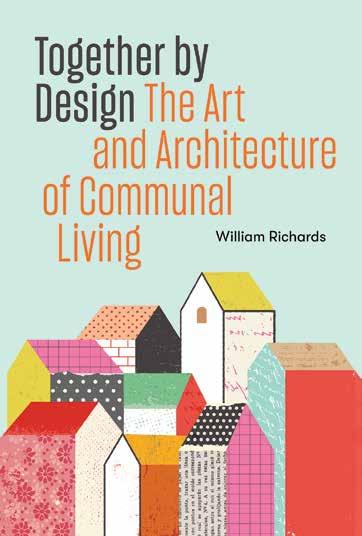
If an architect starts with that value of environmental sustainability, he continued, it can lead to hundreds of choices that make new projects both affordable and green.
“Architecture can also be flexible in the messages it conveys, but it is always certain in its significance as something intentional that shapes all of us. For those reasons, climate, equity, politics and race
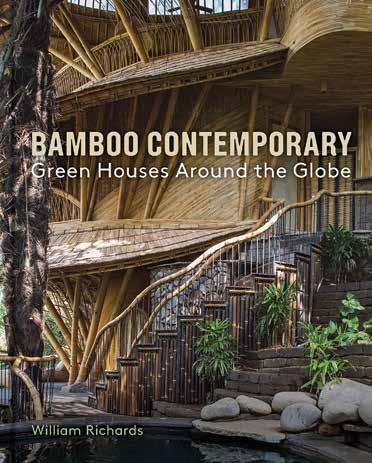
are foundational to architecture’s creation and why it matters to society,” he said.
Richards’s fourth book, currently in production, explores engineered wood known as mass timber and its promise for use in sustainable residential building projects in the future.
When Richards virtually presented the distinguished Heuser lecture in 2021 about cohousing and architects who keep communities at the center of their work, Staudinger encapsulated the lasting impact of his work thus far.
“The great beauty of teaching is the gift of learning from our students,” Staudinger began, as she described a 2004 talk Richards gave about Hans Holbein’s portrait of Sir Thomas More, a noted Renaissance humanist who emphasized
the social potential and agency of humans.
“It was a portrait of a humanist considered to have been one of the greatest scholars of his time,” she continued. “I thank you for the opportunity to listen to your humanist ideas tonight.”
Humanist is likely the perfect way to describe the values Richards places on his chosen path.
“Writers should feel a sense of responsibility and privilege in what they do and how they do it,” he said. “Writing doesn’t always have to be a moral act that’s meant to uphold some broad standard of probity. But I do think writing is an ethical act that reveals as much about ideas as it reveals about the agenda of the writer and the values of the reader.”
To read articles by William Richards, visit www.williamrichards.net
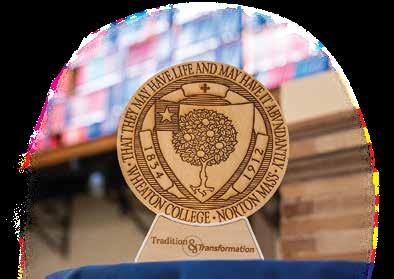 By Michael Graca
By Michael Graca
Wheaton President Michaele Whelan introduced herself to the 100-plus alumni and friends gathered at the central branch of the Boston Public Library by describing one of her top priorities for the first days of her presidency.
“I have been focused on learning as much as possible about the college and the community—what people love about the institution; what they value the most; and where there are opportunities to change and grow in ways that make the college better and stronger for the future,” she said. “Tonight, I’m hoping to continue that conversation with you.”
of purpose. The gathering in Boston on Nov. 15, 2022, was part of the “Building on Tradition, Ensuring Transformation” celebration, intended as an alternative to the usual presidential inauguration. Others were held in Washington, D.C., and New York, N.Y., and more are planned for the West Coast during the spring.
“Instead of one static, externally focused event, I want to engage the extended Wheaton community—students, faculty and staff, alumni, families and friends—to celebrate the college’s strengths and embrace the future,” Whelan said.
The idea of replacing the campus ceremony and party that typically celebrates a new college presidency with an effort to reach out to Wheaton alums, families and friends where they live aligns with the president’s view of her role, too, said Janet Lindholm Lebovitz ’72, chair of the Board of Trustees.
“During the presidential search process, we recognized that one of Michaele’s outstanding strengths is her skill in encouraging discussion, and her willingness and ability to listen and learn,” Lebovitz said. “The Tradition and Transformation
Alumni and friends gather to hear about transformative priorities tied to tradition of successASHLEY MCCABE Alumni Relations asked Brandon Witter ’20, interim coordinator of innovation programs and spaces, to design and create the centerpieces for the Transition and Transformation events. Witter worked to make 10 centerpieces out of wood and plastic using the laser cutter and 3D printers in Wheaton’s Fab Lab.
events are a wonderful opportunity for Michaele to engage and learn from a wide audience of Wheaton alumni and friends, while simultaneously sharing and celebrating with them her vision and plans for the college.”
The response from alums has been enthusiastic. More than 250 people participated in the fall events.
“This is the first time the college has sponsored regional events off campus in at least three years. Alums were excited and very receptive to the opportunity to reconnect with each other in person,”

said Merritt Crowley, vice president for college advancement. “Engaging our external community is vital to Wheaton’s continued success and growth, and introducing President Whelan to our wonderful community through a distinctive series of regional events has proven to be both educational and energizing for our alumni, parents and friends.”
Indira Henard ’03, who spoke at the kickoff event on Oct. 29, 2022, in the nation’s capital, offered a personal spin on the purpose of the gathering.
“These events are designed to help
us all reconnect with Wheaton and learn more about the college’s exciting plans for growth,” said Henard, who is the executive director of the DC Rape Crisis Center. “I am a true believer in the transformational power of the liberal arts because—like so many people here tonight—I am an example of the transformative Wheaton experience.”
In Boston and New York, the gatherings coincided with established national celebrations of philanthropy—National Philanthropy Day on November 15 and Giving Tuesday on November 29—which
inspired alums to make support for the college part of the events. An anonymous donor put out a giving challenge, resulting in contributions of roughly $107,000 on those two evenings.
During her remarks, Whelan described the priorities that have emerged from her discussions over the past year with faculty, staff, students and alums as aligning with three overarching principles: developing resources for faculty, students and staff to achieve high-quality outcomes; spurring growth in the student body and innovation in the curriculum; and embedding diversity, equity, inclusion and belonging into all the college does.
The college’s newest academic programs reflect those fundamental commitments to growth, quality and equity, including the bachelor of science in nursing and new majors in design and criminal justice, restorative justice, and criminology, she said.
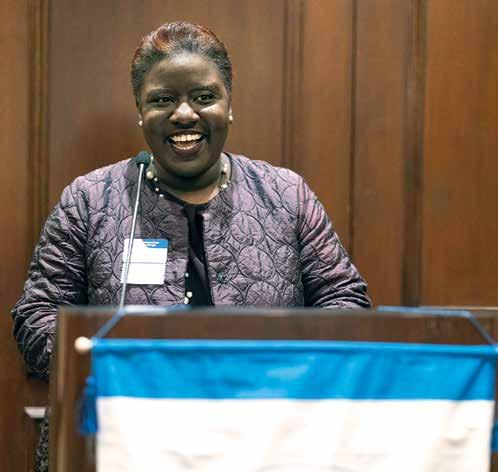
Fall 2023 will mark the start of other initiatives as well. The WheaGo Global program will allow first-year students to start their college career with specially designed study abroad options. The college also will introduce a new intercollegiate athletics program—water polo teams for women and men. The new offering will help draw more students from the West Coast, where the sport is more common, and it will more fully utilize the college’s competition-ready pool.
Whelan also is looking beyond 2023, and she told alums that more innovations are on the way, including offerings that go beyond bachelor of arts and sciences degrees as well as programs that serve high school students. The goal is to broaden the college’s reach by serving new populations, while retaining Wheaton’s distinctive character and liberal arts values, she said. And Wheaton faculty have been exploring the options with Whelan and other senior administrators.
“We are viewing all of the strategic priorities through the lens of the traditions that have come to define our institution and the transformative impact that the Wheaton experience has on students,” Whelan said.
One initiative that builds on the college’s strengths is the proposal to
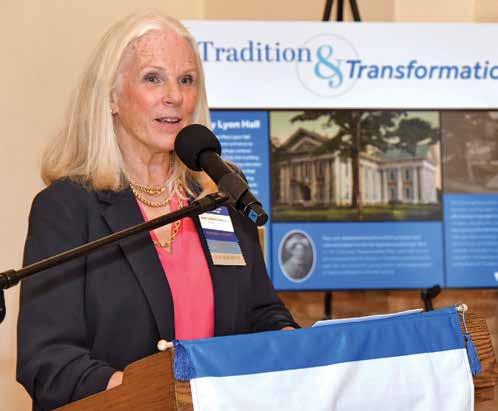
take a holistic approach to helping students prepare for life after Wheaton by establishing a life and career design center. The idea formed the central recommendation of a task force that Whelan established last spring to study how to build upon the college’s longtime emphasis on combining experiential education with the liberal arts and sciences.
“The center will offer programming for all students that will help them design their four-year college career and their postWheaton life and professional careers,” Whelan said. “This pragmatic approach to the liberal arts has a long history at Wheaton. In 1917, Catherine Filene Shouse [a member of the Class of 1918] organized the first intercollegiate Vocational Conference for Women at Wheaton; vocational conferences were held annually
on campus for decades. Our intention is to build on that tradition in a way that positions our students for success.”
One of the college’s greatest sources of strength, President Whelan said, is the support of alumni, parents and friends. The recent opening of the Diana Davis Spencer Discovery Center Dedicated to Free Speech and Innovation, as well as the new strength and conditioning center in the Haas Athletic Center—both made possible through philanthropy—illustrate the impact of an engaged and generous community of individuals who are committed to the college’s mission. That dedication will help the institution continue to evolve in ways that best serve a new generation of students.
“The challenge that we face as a community now lies in transforming the
college so that we are able to sustain the quality of the education that Wheaton offers,” Whelan said, speaking to those gathered in Boston. “Given the strong foundation from which we’re starting; the sense of shared interest and support from the college’s alums, families and friends; and all the exciting changes that are already underway, it’s clear that this is a task well within our reach. We simply need to identify the opportunities for continued evolution of the college and come together as a community to make it happen. The more that I learn about Wheaton’s past and its present, the more excited I become about its future. I hope you share that excitement.”
View a gallery of photos online

A single moment can crystallize one’s purpose. For Michael Sheehy ’98, that flash of insight occurred 25 years ago as a Wheaton student, when he encountered an image that had a life-changing impact on him.
“I was on the second floor of the Wallace library, where there is a sitting room with art books. I came across a book on Himalayan art. For some reason, I was so captivated by this painting of a female Tibetan deity. It was a close-up of her face on a fresco of this deity named White Tara, this goddess,” Sheehy recalled. “I remember feeling mesmerized.

The world had stopped. I was enchanted by this deity and that was it. From then on, I asked myself, ‘Who is she? What is this?’ I had to know.”
For Sheehy, that discovery solidified his desire to explore Buddhism—particularly Tibetan Buddhism. He enrolled in as many courses as possible at Wheaton on
Asian art, culture, religion, history and politics, and studied abroad in Japan, Nepal and India, where he could see firsthand Buddhism in practice.
Twenty-four years after graduating, Sheehy is tirelessly working to preserve knowledge of Tibetan literature and contemplative practices. Over the years,
his journey has entailed years of field research and contemplative practice, including at a monastery in remote Tibet, and efforts to better understand the intersection of science and Buddhism.
He currently serves as the director of scholarship at the Contemplative Sciences Center at the University of Virginia.
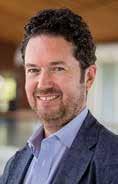
Pursuing meaningful experiences—the most natural of human impulses—is at the heart of contemplative life, said Sheehy.
“Among our records of the earliest humans from painted caves—such as Lascaux in southern France—we have evidence that humans were seeking to give meaning to their world. Practices of contemplation are designed to elicit meaningful experiences and imbue life with meaning,” he said.
Sheehy believes a better understanding of contemplative practices holds the key to confronting global challenges.
“We are living during a global epoch of heightened distraction and rapid change. This moment requires new ways of thinking and responding, new ways of being in the world. Because of the challenges that we face globally, humanity is hinged on how we shed maladaptive
systems and retool ourselves with new systems of technology.
“This has historically been the case for humans and other species. Contemplative practices are a human technology that we can use to retool ourselves with greater attentional, emotional and embodied skills,” he said.
In March 2022, Sheehy’s journey brought him back to Wheaton to present the 32nd Annual Martin Lecture in Religion. It was the first time in the lecture’s history that an alum was chosen and invited to present their scholarship, according to Professor of Religion Jeffrey Timm.
In his talk, Sheehy discussed various Vajrayana Buddhist practices from the Tibetan and broader Himalayan regions. These practices, which require
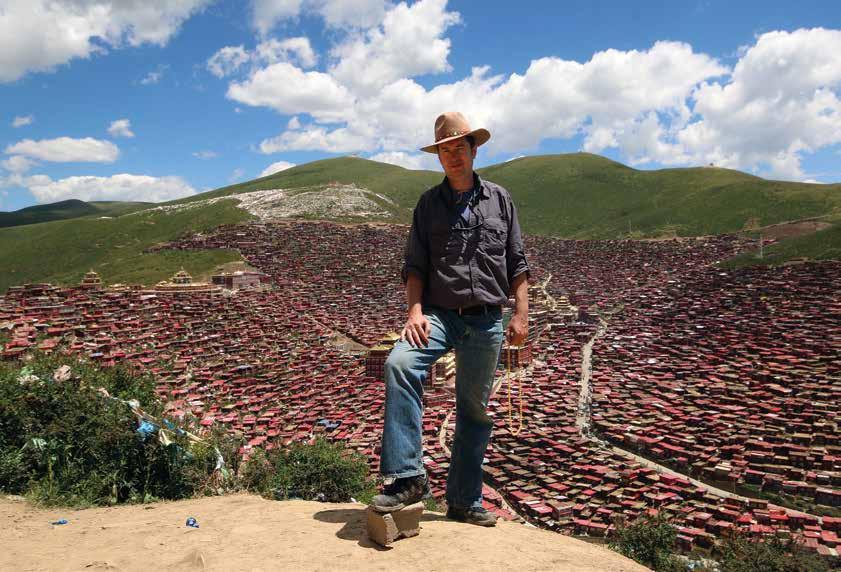
a practitioner’s undivided attention, are aesthetically oriented, formal and include meditation, yoga and other techniques that involve control of bodily postures, voice and mind, he said.
“There’s an astonishing variety of these practices. It’s important to think about them as a kind of species of knowledge that’s endangered because of social, cultural and historical forces,” he said.
Among the many practices that he described included “dream yoga,” which entails recognizing a dream as unreal and engaging in lucid dreaming, and “tummo,” a yogic practice to induce ecstasy by regulating body heat. For the latter, he said the ability to generate body heat through a sequence of breath retention and forceful breathing, physical exercise and visualization has been studied and confirmed by scientists.
For Sheehy, meditation and other contemplative practices are integral to
being human.
“The nature of consciousness is one of the great riddles of our time. These contemplative practices provide methods to experimentally probe our subjectivity and provide a methodology to look into our minds and inner world,” he said.
Shuchang Gu ’23 said Sheehy’s lecture opened her mind to what human beings can achieve with their bodies. She added that people often forget the original context of contemplative practices.
“Contemplative practice is more than a way to relax. It is a route to explore ourselves not through tools or instruments, but directly experiencing it; it is a pursuit to discover something from the inside instead of from the outside world; it is a method to refresh our expectation of possibility,” Gu said. “Depriving it of its original context not only affects our practice of it but also limits us in appreciating its value and makes us ignore what it can
contribute to the future.”
Professor Timm said he hopes all students benefited from the lecture.
“My goal was to try and get the word out, to any student interested, that you are not the sum of your desires, thoughts and feelings. Alternating between hope and fear is not the only way to live your life. There is a bigger story beyond being an ego in the persona field. And, when you are ready to find out for yourself, here are some views, tools, techniques and practices that have helped some people wake up to reality, beyond cultural constructivism and identity politics, to the way it really is,” Timm said.
A career as a leading scholar in Tibetan Buddhism may seem unlikely for Sheehy, who was raised in a small town in Bucks County, Pennsylvania.
His grandmother planted the seed that cultivated his interest in contemplative practices. She had a room in her home, which she painted blue, where after school she would encourage a young Sheehy to relax, calm the body and mind, and exercise his imagination.
“My grandmother, in her own gentle way, started to introduce me to meditation, without calling it meditation, as well as relaxation and visualization techniques,” Sheehy recalled.
Eventually, as a teenager, he stumbled upon the word “meditation,” which he connected to his experiences at his grandmother’s house, and which led to his discovery of Asian philosophy and Buddhism.
At Wheaton—notably after the lifeclarifying moment in Wallace library—he doggedly pursued coursework in Buddhism and chose to major in Asian studies. Professor Timm, from whom he took the course “Buddhism Thought and Action,” eventually—in part due to Sheehy’s encouragement—began offering a series of Buddhism courses.
Sheehy’s passion for contemplative practices was ever-present as a Wheaton student. With two like-minded friends, he organized meditation and yoga groups.
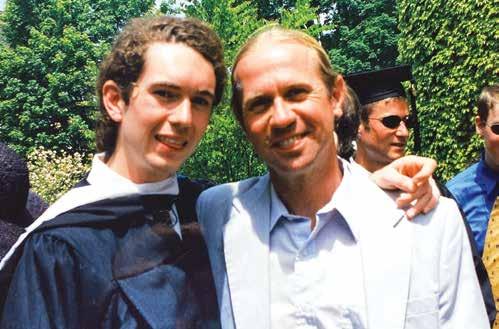
“We created this kind of environment
where we had identified the faculty members at Wheaton who were teaching Buddhism, and what we could learn from them, and we created spaces where we could practice. So, we had this academic intellectual side and we also had this contemplative extracurricular side,” he said.
There also were clear signs of Sheehy’s gift for research. Timm fondly recalled the alum’s honors thesis, a tour de force account on human rights in Tibet and the Buddhist path of healing social conflict. At over 184 pages, it’s the longest honors thesis in Timm’s memory.
“What’s super amazing and remarkable
to me is that now, 24 years later, Michael is tilling the same fields with an everdeepening skillfulness, wisdom and compassion,” Timm said.
Throughout his career and life, Sheehy has carefully balanced his love of research and his passion for contemplative practices.
On the academic side, he dedicated himself to learning the Tibetan language. During his junior year at Wheaton, he spent a semester studying at Naropa University first in Kathmandu, Nepal, and
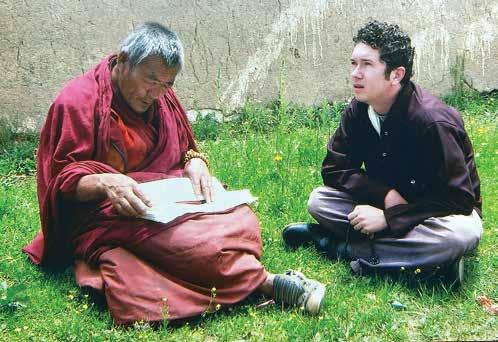
then in Boulder, Colo., where he secured private lessons in the Tibetan language.
After graduation, he spent 18 months in India following the historical pilgrimage route that traced the life of the Buddha. He then lived in Bangkok, Thailand, where he worked as a writer and editor for a small nonprofit focused on socially engaged Buddhism.
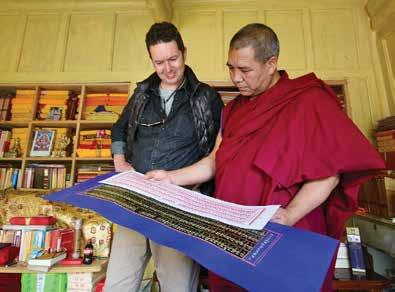
At that point, low on money and trying to sort out his future, he was at a crossroads.
“I knew, at the time, because of my experience in Asia, because of my experience at Wheaton, and back to my experience with my grandma, I not only wanted to study Buddhism academically and get my Ph.D., I also wanted to make sure it was complemented by an experiential education,” he said.
Sheehy moved to New York City, worked temp jobs, and enrolled in Tibetan language courses at Columbia University. After one year, he moved to California to study Buddhism. He pursued his Ph.D. in Buddhist studies at the California Institute of Integral Studies, and concurrently at the University of California, Berkeley.
“My doctoral work was on a very small, really unknown tradition of Tibetan Buddhism called the Jonang. It was not known outside of Tibet and was thought to be extinct. My dissertation showed that the tradition is still alive and described its history, thought and philosophy,” he said.
For his research, Sheehy ventured to remote places to seek out rare manuscripts. He lived in a monastery in northeastern Tibet for three years where no one spoke English and there were no other foreigners.
The experience exposed him to Tibet’s rich literary tradition.
“Tibetan culture has one of the greatest literary cultures and one of the great literary archives that humanity has produced. There’s extraordinary Buddhist contemplative literature written in the
language,” he said.
While in Tibet, he met and fell in love with his wife, Yeshe Tsho, from Ngawa. (Today, they share two daughters, ages 13 and 10.)
He also began corresponding with the late E. Gene Smith, a scholar of Tibetan literature and history who founded the Tibetan Buddhist Resource Center (now called the Buddhist Digital Resource Center). Smith invited Sheehy to work with him at the center as a postdoctoral researcher in 2008, where he was building a digital library of Tibetan literature. Sheehy became the editor and then eventually the director of research at this organization,
& Life Institute, an organization founded by the Dalai Lama and a neuroscientist named Francisco Varela that explores the intersection of Buddhism and science.
“I worked very closely with the leading neuroscientists of meditation and organized interdisciplinary dialogues between Buddhist contemplatives, philosophers and scientists,” he said.
In 2018, Sheehy joined the Contemplative Sciences Center at the University of Virginia, where he researches meditation and yoga manuals, procedural instructions and histories of different contemplative practices. He also serves as a research assistant professor in Tibetan Buddhist studies in the Department of Religious Studies.
One of his major projects at the center is the Generative Contemplation Initiative.
where he stayed for eight years.
“I ran projects all over Tibet—field research projects to preserve rare, endangered literature, to digitize and catalog it. And then, in 2016, I moved to Cambridge, Mass., and this work became part of the Harvard Library,” he said.
After many years of fieldwork, including his time in the monastery and running digital manuscript projects, he circled back to his other passion: contemplative practices.
“I had to return to my origins. I wanted to pivot and focus on contemplative practices, meditation and yoga,” he said.
Sheehy took a job in Charlottesville, Va., as the director of programs at the Mind
“My main research project looks at the fundamental principles of contemplative practices, identifies them, and then tries to understand the building blocks of practice and the context in which practices were performed. We are thinking through how practices can be designed based on understanding these fundamentals, like learning a new language. We consider this building toward a ‘contemplative fluency,’” he said.
Sheehy’s oscillation between study and practice has enabled him to access Buddhist culture and traditions. Now his focus is on helping interpret Tibetan knowledge and practice for broader audiences, which he calls “cultural translation.”
“What I mean by a cultural translation of these practices is a way of communicating how we can draw from our immense heritage of human knowledge to innovate and adapt these practices for our current time and culture, whatever that may be. If we are to invest in technologies, which I believe we must, they should enhance the self, body and mind,” Sheehy said.
On a September morning in Professor of Education Scott Gelber’s “Education and Equality in the U.S.” course, J D. Fergus ’01 demonstrated to Wheaton students ways to create a positive and welcoming atmosphere in the classroom.
He distributed paper plates and asked each student to write down an important value to them, and then share their answers with partners. He also ensured everyone’s voice was heard during the class and went out of his way to connect individually with students.
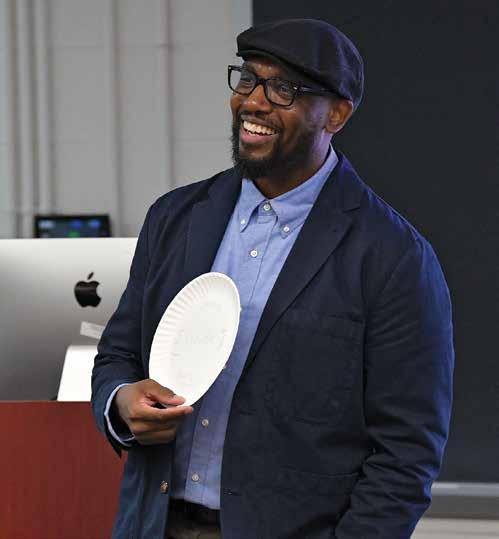
These simple exercises, which help enhance interpersonal relationships, demonstrate what restorative justice in an elementary and secondary classroom setting ideally should look like, according to Fergus, who is a network managing director of equity and restorative practice at Phoenix Charter Academy Network and lead trainer at the Center for Restorative Justice at Suffolk University in Boston.
Gelber invited Fergus to his course to give his students a deeper understanding of restorative justice in practice. One goal of this approach is resolving conflicts in schools without relying on the traditional tools of suspension and expulsion, which often disproportionately affect students of color.
Fergus, who majored in history at Wheaton, received his master’s degree in secondary education from Tufts University before launching his teaching career.
“I had learned to be very rigid going into education. I think because of that, I relied on school culture and rules for classroom management. But restorative justice really helped me figure out how to balance control and influence,” Fergus said in an interview after the class.
Ways of influencing the culture of a classroom include establishing with students early on what they—and the teacher—need to succeed. For example, the class could meet in a circle and address the question, “What do you need to be your best self?” and create community
guidelines that can evolve over time.
“It’s also important to be authentic as a teacher. Young people pick up on authenticity. So with them, I can be my playful and curious self,” he said.
Fergus first took on the role of restorative justice coordinator at Prospect Hill Academy Charter School and has since worked in a similar capacity for various schools and programs.
Following his talk, students shared their primary takeaways. Several brought up how restorative justice could have improved the cultures of classrooms in their past and the need to address student
mental well-being.
“I thought about how social justice could be applied to my own high school, and how schools I know in my own hometown could benefit,” said Chloe Leetch ’25, who is majoring in history.
The experience of nurturing a welcoming classroom and helping students resolve conflicts is the most gratifying part of his job, Fergus said.
“The human side of my work brings me joy; it’s a great feeling that keeps me motivated,” he said.
—Laura PedulliIn the sciences, fungi often are overlooked, as many perceive them as deadly, gross or weird, according to mycologist, taxonomist and educator Patty Kaishian ’13.
Of the more than 3 million species of fungi thought to exist, only 150,000 have been described. As such, the fungi kingdom is ripe for scientific research and a greater understanding of its special place in the tree of life, she said.
“We’ve barely scratched the surface of what fungal diversity exists around us,” said Kaishian, a visiting professor of biology at Bard College.
The alumna, who majored in biology, has dedicated her career to fungi. She presented the LaDonne Heaton Schulman ’57 Alumnae/i Lecture on October 5, in Hindle Auditorium at the Diana Davis Spencer Discovery Center Dedicated to Free Speech and Innovation. The following day, she led students in Professor of Biology Scott Shumway’s “Environmental Science” course on a mushroom hunt in Wheaton Woods.
Fungi—which are more closely related to animals than plants—provide a lens into the Earth’s rich biological diversity and may offer solutions to some of the planet’s greatest challenges, Kaishian said.
For instance, some species may help fix
damaged habitats through their ability to break down heavy metals or even radioactive materials. Also, research into fungal profiles within the human body may provide the groundwork for future cancer treatments, she said.
Kaishian first discovered a love of fungi during a naturalist course. At Wheaton, she enriched her knowledge through biology courses and research experiences in Costa Rica and China. She also studied mites that live on bees at a local farm with Professor Emerita of Biology Betsey Dyer.
“At Wheaton, I learned to become a scientist and how to do work in the field. What made me excited about studying mycology, in addition to the organisms,
More photos online wheatoncollege.edu/wheaton-magazine
is the excuse to be outside because that is where I felt most like myself, inspired and happy,” she said.
Following Wheaton, she spent a summer in Peru studying fungi with the nonprofit Project Amazonas. In 2020, she completed a Ph.D. in mycology at SUNY College of Environmental Science and Forestry. As part of her doctoral research, she named and described 13 new species of fungi.
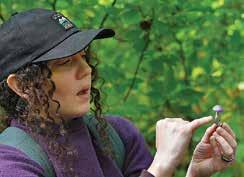
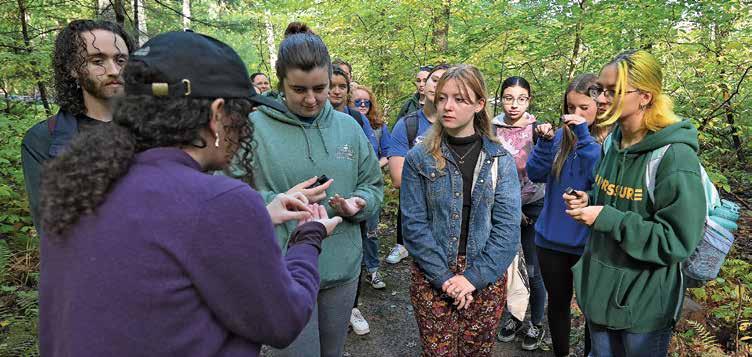
Equally important to Kaishian is her work as an activist. In 2018, she collected biological data on rare species in Ecuador to help prevent mining on Indigenous land. She also is involved in peacemaking efforts in Armenia—her ancestral homeland.
“Science is an enormously powerful tool for resisting climate change and trying to protect the places that we love. It has to be done with other socially informed concepts, principles and action,” she said.
Mary Hodge ’25, a biology major, described Kaishian’s lecture and visit as inspiring.
“I also found it very comforting to see a younger scientist who is successful in a pure science field and is also able to integrate social justice into her work,” she said.
—Laura PedulliLeadership requires individuals to do the right thing; recognizing what the right thing is often is the more challenging prospect.
Santa Clara County (Calif.) Deputy District Attorney Mattia Murawski Corsiglia ’05 believes this weighty inquiry is one of the hardest parts of being a prosecutor. And “the lessons I learned at Wheaton have helped me answer this question when it mattered most,” he said.
Corsiglia’s skills are tested regularly in the District Attorney’s office, which is based in San Jose. Here, Corsiglia focuses on complex forms of crime such as corporate embezzlement, money laundering, Ponzi schemes, health care fraud, tax fraud and worker exploitation. His high-profile work has been featured in the media, including The Mercury News and San Francisco Chronicle.
“Each day, I am challenged to shed light on suspects who use positions of authority and trust to defraud their victims,” he explained. “I recently obtained convictions in the largest health care fraud case ever prosecuted by my office and one of the largest financial recoveries by a local DA’s office in the state of California.”
Service to the community was ingrained in Corsiglia from an early age. As a child, he and his mother moved from Italy to San Jose to join his grandparents, whose civic work in health care, the arts and more was recognized on the U.S. House floor in 2017. He selected Wheaton so he could build close connections with professors and have opportunities to reach beyond academic interests to create something tangible.
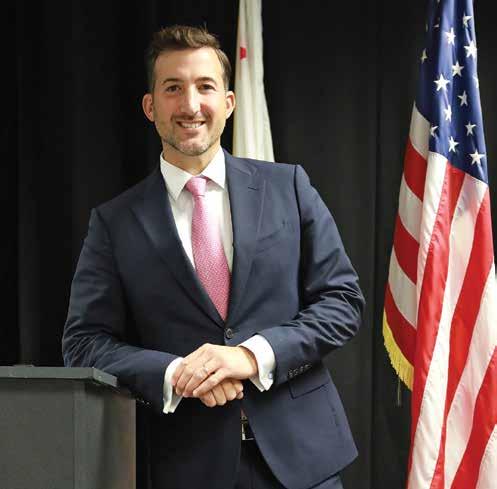
“As a result of my parents’ and grandparents’ influence, I became acutely aware of the need to work on behalf of my community,” Corsiglia said. “But it was in [the late] Professor Jay Goodman’s Political Science 101 course where I learned that law school provided me a path to realize my dream.”
At Wheaton, Corsiglia earned his
bachelor’s degree in political science. He went on to earn his J.D. from Santa Clara University School of Law, where today he teaches a course titled “Critical Lawyering Skills.” He incorporates many of the ideas he explored in Wheaton courses with professors Goodman, Stephen Mathis and Marcus Allen.
“The types of cases I prosecute often raise novel issues in both the civil and criminal arena,” he explained. “As such, it’s important to have a diverse skill set. I teach ‘Critical Lawyering Skills’ to help students be reflective, strategic and deliberate in developing their abilities.”
Corsiglia’s service to the region extends well beyond his work in the DA’s office. He co-chairs the Criminal and Judiciary Committees of the Santa Clara County
Bar and is on a committee helping to fund a new high school in downtown San Jose. All this is in addition to raising two children with his wife, Roshan Corsiglia.
Wheaton’s new major in criminal justice, restorative justice, and criminology is of special interest to Corsiglia because the program will encourage critical thinking.
“Wheaton is taking an important and leading step during an inflection point in society,” he said. “Because Wheaton produces tomorrow’s leaders and change makers, it’s never too early for students to think about criminal justice policies and varying responses that deliver the thoughtful reform society seeks.”
—Jayne M. Iafrate
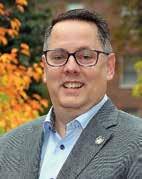

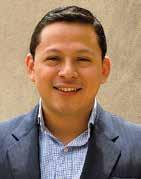
Wheaton’s all-volunteer Alumni Board of Directors, which strives to offer meaningful connections and engagement between and among alumni, future alumni and the college, welcomed five new members for three-year terms. They all bring distinctive professional and personal experiences to their leadership roles. Each shared their motivation for joining:
Double majored in political science and international relations
Head of North American sales, at Glass, Lewis & Co.
“Wheaton’s influence in my life has been immeasurable. I count numerous current and former Wheaton faculty and staff members as friends, mentors and advisors. I particularly point out the late, great Professor Jay Goodman and Professor Darlene Boroviak as incredibly important. Fellow students also have been great influences with my wife—Amy Eddy ’99—holding the top spot.”
Double majored in political science and economics
Emergency department nurse practitioner, UMass Memorial Medical Center
“I loved being an active member of the Wheaton community, both as a student and after graduation when I worked as an admission counselor for several years. Serving on the Alumni Board of Directors allows me to remain closely connected to the college as it grows and changes. I am particularly interested in new programs on campus, such as nursing.”
Majored in international relations
New Songs Rising Initiative fund manager, Grantmakers for Girls of Color

“I have joined the board to strengthen alumni relations, especially with alumni of color. Wheaton has a phenomenal, powerful network of graduates who can work together to ensure that each member of our community has access to the support and resources available within our ranks.”
Majored in international relations
Head of supplier relationship management, Global Data, Digital and Technology, Takeda Pharmaceuticals
“Wheaton provided me with great opportunities to pursue my dreams as a student-athlete on the men’s soccer team and it opened the doors to my professional career. I would like to find additional ways to contribute to the college as a member of the board.”
Majored in economics
Senior, Quantitative Economics and Statistics Team, at EY “Wheaton offered many resources that allowed me to explore my academic passions and build my career prospects as an international student. I am strongly motivated to contribute to the Wheaton community by making sure that the opportunities I received continue to be available for everyone.”
—Laura PedulliJanis Robinson Daly ’84 hosted a book launch event in Mary Lyon Hall for her debut historical fiction novel The Unlocked Path in September 2022. Several classmates came out to cheer her on. Attendees pictured, from left: Jean Sylvester, Marcia Gallicchio, Janis, Susan Reals Treadway, Mariellen Mooney O’Hara, Anne Tafe Graw, Roma Fanton Hoyt and Kerin Stackpole.
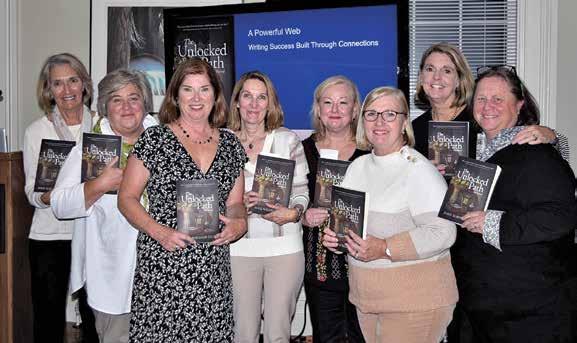

Masa Mita ’22, Kayla Garabedian ’22 and Adam Erdossy ’03 found each other on the set of the short film “Aftermath”—based on director Chessy Prout’s memoir I Have The Right To: A High School Survivor’s Story of Sexual Assault, Justice, and Hope —in Kennebunk, Maine. For the film, Mita served as the assistant director, Garabedian was cast as the main character and Erdossy had a role in the film.
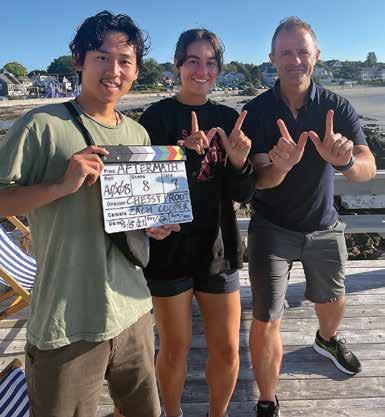
Mita shared more about the experience: “The shoot went on for five days at a beach house, where we bonded over exchanging memories of Wheaton outside shooting hours. It was inspiring to see Adam as an older Wheaton alum thriving in the creative industry, as well as Kayla successfully playing a challenging role. Working with them reminded me that it’s not about the scale of the production, but it’s about collaborating to tell the story we all believe is worth sharing. I hope to see more students in arts at Wheaton in action in the future.”
Logan Hinderliter ’14 and Hannah Parzen ’13 pose with Wheaton
Provost Touba Ghadessi and President
Michaele Whelan at the Newport International Polo Grounds and Pavilion in Portsmouth, R.I., on Sept. 3, 2022.
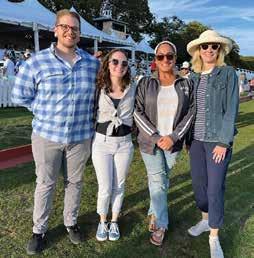
Did your contact information change?
Report changes of address and email to Alumni Relations at 508-286-8207 or alum@wheatoncollege.edu.
Contact us at classnotes@wheatoncollege.edu and we will put you in touch with your class secretary.
Contact our Alumni Relations Office to get involved at 508-286-8207.
For class secretaries: How to
By email: Submit Class Notes to classnotes@wheatoncollege.edu. Include your class year in the subject line (e.g., “Class Notes, 2001.”)
Spring: Jan. 17, 2023
Fall: June 6, 2023
Winter: Sept. 26, 2023
To submit digital photos, email them as an attachment to classnotes@wheatoncollege.edu. For full guidelines, visit wheatoncollege.edu/wheaton-magazine/submitting-digital-images.
For all photos: Please supply a brief description of the event and all the names and class years of the alumni in the picture.
Please note: The photos you send in must be sharp and clear. Photos that are out of focus, or that have harsh shadows, over-exposed areas or “red-eyed” subjects may not be usable. Often we receive more photos than we can use in any one issue. When this happens, we will select photos that represent a variety of class years and timely events.
The Alumni Board of Directors is interested to know about alumni whose work deserves to be recognized or whose talents enrich our community. Please share their stories (or yours) with the Alumni Board at alum@wheatoncollege. edu or call 508-286-8207. To learn more, please visit wheatoncollege.edu/alumni
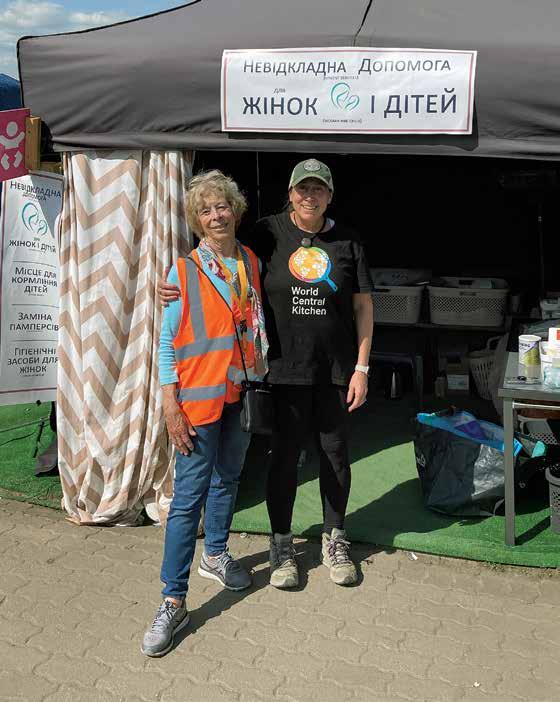
Every few days, a new dispatch— often with photos—would arrive by email from Jane Thomas Elliott ’66. The updates provided her Wheaton classmates with a vivid picture of life on the Ukraine/Poland border last spring and summer, where she spent several weeks volunteering as a nurse.
She would share a photo of an 18-year-old, Myra, whose life was turned upside down by the Russian-Ukraine conflict: “Note the short little black dress, pink nails, blond hair, boots above the knees, cellphone—typical 18-year-old! Beautiful Myra with her [swimming] medals. Now, she has no medals, no sports club, no home, no friends.”
Or she remarked on “savior” and “cool dude” Jan, a Danish coordinator of the nonprofit Bright Jar, who is risking his life to make deliveries of clothes, food and medicine headed for the front line: “Jan puts tracking devices on each box and watches the van’s videos of the delivery, … who receives it, signs off, etc. like UPS. Hand delivery is the only safe way [to ensure that supplies make it to their destination].”
Sometimes Elliott would share moments of light during the dark times; of children receiving an unexpected gift. “At the orphanage. Such an exciting time for the kids. Got to pick out clothes, games, shoes, toys. Wonderful day.”
These snippets were among many she shared during two volunteer trips: four weeks in May and another two weeks in July of 2022.
Elliott spent her career as a nurse at hospitals, including Brigham and Women’s Hospital and Massachusetts General Hospital. She joined the volunteer effort to help Ukrainians fleeing conflict after the pandemic led her to quit her job.
“I felt so restless when COVID-19 started. I knew I couldn’t be working in a hospital [due to risk factors]. When this war in Ukraine started, I couldn’t watch the news and sit there and not do anything,” she said.
After outreach to several organizations, a nurse from Ronald Reagan UCLA Medical Center immediately asked if she could fly out to Poland to help.
As a volunteer, Elliott provided
trauma support to Ukrainian refugees fleeing primarily to European countries.
”A lot of people were shellshocked and suffered. They picked up what they could before heading to the Polish border. Because they had been through trauma, it wasn’t easy to talk about it. You go by facial expression, whether they are willing to answer questions, learning so much by listening and observing
and making your own mental assessment,” she said in an interview after she returned home.
As an art major who taught English and studio art prior to starting nursing school, she said writing about the experience has helped her process it—and get the word out.
Her friend and classmate, Sue Mettey McLellan ’66, has shared her updates with classmates, and Elliott has received supportive,
encouraging emails and donations to help people impacted by the conflict. (Her second trip was focused on bringing in needed medical supplies.)
“I’ve been able to reach a lot of people, getting people to understand what’s really going on. My hope is to really keep reminding people that this is a tragic situation that continues,” she said.
—Laura Pedulli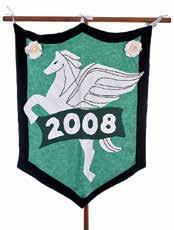
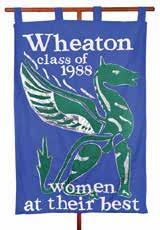
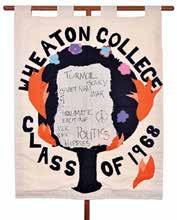

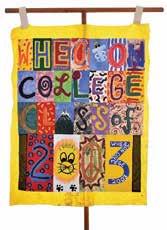
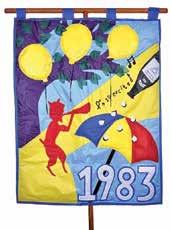

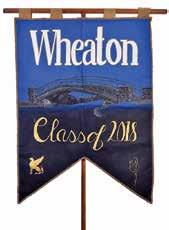
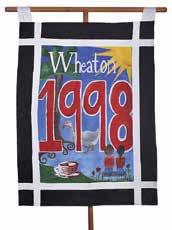
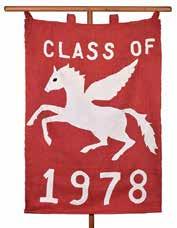


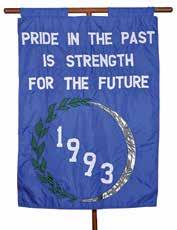
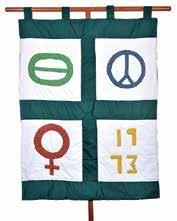
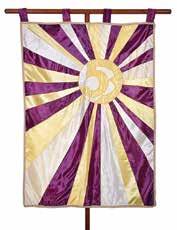
Alumna’s new role is latest in string of prominent positions in public affairs
Liza Acevedo ’15 continues her ascent in the world of highprofile communications. In her latest professional move, she took on the role of communications director for U.S. second gentleman Douglas Emhoff, the husband of Vice President Kamala Harris.
“I feel very proud,” said Acevedo in a September 9 NBC News article announcing the ap-
pointment. “And I feel very ready to make a difference working on behalf of the administration to help communities, including the Latino community.”
Acevedo most recently served in the role of deputy press secretary for the U.S. Department of Homeland Security. She also previously worked for the Julián Castro presidential campaign and New Jersey Gov. Phil Murphy.
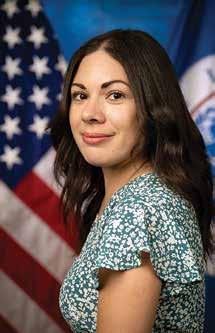
Acevedo majored in economics at Wheaton. A student-athlete on the college softball team, she originally envisioned herself working in sports. But at the suggestion of a mentor who

noted that she might thrive in a government position, she interned the summer before her senior year with the Office of Congresswoman Yvette Clarke (D-N.Y.), working with the chief of staff and communications director.
She officially joined Emhoff’s office in August 2022.
“It is an honor to serve as communications director for Second Gentleman Douglas Emhoff and continue the work of the BidenHarris Administration in the White House,” she tweeted in September.
—Laura PedulliJonah Tillman ’23
Psychology major Kellee G. Livingston ’86 Wheaton Fund Internship
“This past summer I had the opportunity to intern as a therapeutic mentor with Luminosity Behavioral Health Services in Brockton, Mass. I got to work with young children, along with their clinicians, to aid them in reaching social and behavioral goals. This experience has made me very excited to gain more knowledge to prepare for a career as a therapist and work toward the impact I plan to have. I am thankful for the support from the Wheaton Fund.”
Go online to learn more about how your support creates opportunities for Jonah and other students.
wheatoncollege.edu/giving
While working on her first novel, author Janis Robinson Daly ’84 reached out to her contacts at Wheaton for research assistance, copy editing, publishing advice, sensitivity readers, marketing and more. Her historical novel The Unlocked Path follows Eliza Pearson Edwards as she enters medical school in the early 20th century. In September 2022, Daly offered a reading in Mary Lyon Hall. She shared more about the novel-writing experience and the support she received from Wheaton connections:
“During a genealogy search on my great-great-grandfather, William Peirce, one return hit featured a snippet from FamousAmericans.net: He took an active part in founding the Woman’s Medical College [WMC] of Pennsylvania. As a 1984 graduate of Wheaton, then a women’s college, this piqued my interest. As I learned more about WMC, I discovered similar supportive relationships established among students, faculty and alumni as I had found at Wheaton. I was moved to write The Unlocked Path to spotlight the courage and determination of early WMC graduates.”
Research assistance: “By contacting the chair of the Biology Department, I secured two recent Wheaton graduates, then in medical school, to take part in a survey and interviews as I collected input into the life of a female med student. [Rochelle Clarke ’18 and Allison Cox ’18]” Publishing advice: “Within the Wheaton magazine, I noticed an announcement that Ashley Sweeney ’79 had published her first historical fiction, Eliza Waite. I contacted Ashley, requesting advice or tips. She immediately replied with not
only a few tips, but has become a mentor, trusted advisor and cherished friend.”
Copy editing: “ Through the
algorithms of LinkedIn, the name Lisa Phillips Goodrich ’89 popped up in my feed. Lisa’s profile highlighted her skills in copy editing, and she lived on Cape Cod, less than 20 minutes from me. She delivered my manuscript back to me marked with edits at least 10 other readers had never spotted.”
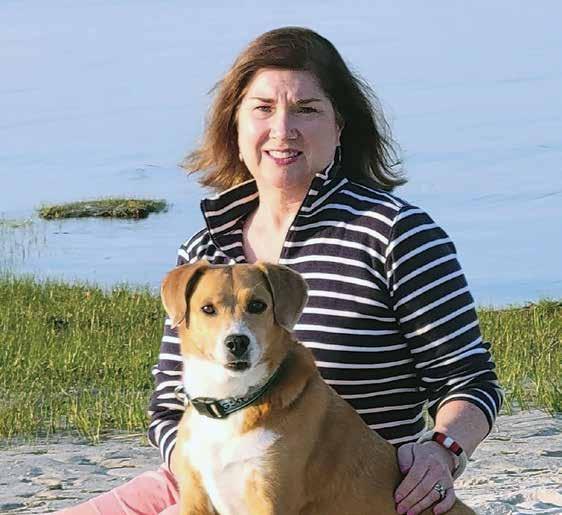
Sensitivity readers: “The Unlocked Path includes two secondary characters in a gay relationship. To feel confident that I portrayed that relationship in a respectful and thoughtful manner, Kerin Stackpole ’84 and her wife read the manuscript. They provided suggestions.”
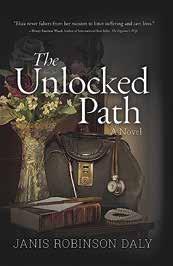
Marketing: “Several Wheaton ’84 classmates assisted with a variety of pre-launch marketing projects [Anne Tafe Graw, Emily Johnson Goode and Mariellen
Mooney O’Hara].”
Pre-publication readers: “I have booked author appearances with two classmates [Emily Johnson Goode ’84 and Irja Sheppard Finn ’84], who run local book clubs. They each contacted their local libraries requesting copies of The Unlocked Path be purchased, so book club members will be able to check it out from the library.
I hope other Wheaton graduates will learn from my experience and see the possibilities of leaning into this powerful and empowered community.”
—William Walsh, director, advancement communications
Read the full interview online on Wheaton’s blog.
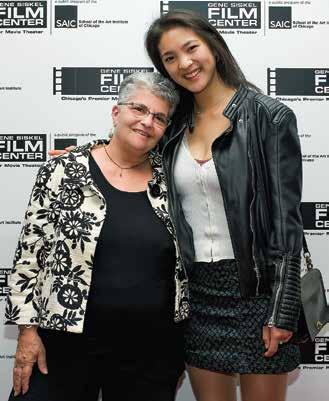
Oriana Camara ’20, who double majored in film and new media studies and Hispanic studies at Wheaton, was celebrated on Sept. 18, 2022, at the “10 Best of the Best” event honoring talented filmmakers.
Camara was selected by a jury as one of the 10 best of the past 10 years from the One Earth Young Filmmakers Contest. In 2020, she won a top prize in the contest for the short documentary “Yasuni National Park: The Real Power Belongs to the People.” She shot the film during a faculty-led course in Ecuador.
The documentary was featured along with nine other short contest films from across the country and around the world. The event took place at the Gene Siskel Film Center in Chicago.
“Yasuni National Park: The Real Power Belongs to the People” focuses on the impact of oil drilling in the area that is home to thousands of species of plants and animals as well as Indigenous people. The documentary was shot in the summer of 2019 while Camara was enrolled in “From the Andes to the Amazon: Intersections of Culture, Food Systems and Biological Diversity,” which was taught by Assistant Professor of Biology Jessie Knowlton and Associate Professor of Sociology Justin Schupp, as well as Melissa Mark from Northern Arizona University.
“Oriana is extremely talented. Her film tells the story of an environmental conflict, but with tremendous tenderness, almost in a whisper. Paradoxically, the film has an enormous emotional impact,” said Lisa Files, Young Filmmakers Contest program director and digital media associate. “We’ve had almost 1,000 submissions to the contest over the past 10 years, so being selected as one of the 10 best films is quite an honor.”
Camara said she, indeed, feels incredibly honored to be one of 10 creators invited to participate in the event. “Since I first met the team at One Earth, I’ve been struck by their kindness and dedication to helping youth share their voices. This new honor is meaningful to me because it feels like a win for Ecuador’s land, too.”
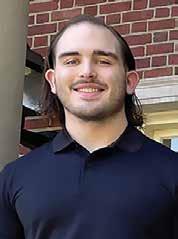
Cody Mills ’22 is immersing himself in the northeastern city of Tome, Japan, for a yearlong teaching position through the Japan Exchange and Teaching (JET) program. Mills, a double major in English and secondary education, serves as an assistant language teacher in one of the city’s elementary schools.
Founded in 1987, the JET program is a competitive teaching exchange program managed by the government of Japan that has placed more than 35,800 Americans to work in schools, on boards of education and in government offices.
For Mills, the JET opportunity combines his many passions and interests, including teaching, education and Japanese culture. As a child, the Japanese animated
film “Spirited Away” sparked Mills’s interest in the country’s art, folklore and mythology, and led him to study everything he could about Japan. Since then, he has become an avid consumer of all things Japanese.
At Wheaton, he decided to major in education and English with
the goal of becoming an English teacher. As a student, he served as a writing tutor for three years and worked in the Admission Office, where he said he developed skills both in public speaking and hospitality services.
As part of his practicum his senior year, he taught English as an assistant at Norton High School. In that role, he said he enjoyed helping students discover their passions and think critically about the world around them.
“When I discovered the JET program, it all just clicked. I knew that as an assistant language teacher for the program I would be able to not only live my passion teaching, but do so in an environment where I could simultaneously teach and learn about a rich and unique culture,” he said.
Mills, who himself is originally from the small town of Dinwiddie, Va., said he looks forward to living and working in a more rural area
of
“Coming from a rural area of the U.S. myself I understand the scarcity of quality education. My goal is to provide these areas of Japan with valuable language skills that they can then use to uplift the community around them or be able to seek opportunities that would not be afforded to them otherwise,” he said.
Mills said he hopes to gain a better understanding of Japan as well as teaching in a foreign environment. His long-term goals are to receive his master’s degree in literature and earn his Teaching English as a Foreign Language or Teaching English as a Second Language certification.
“Even after my time with the program has concluded, I still wish to reside and teach in Japan, continuing my service and education in less developed areas,” he said.
—Laura PedulliHelen Williams Hill, 106, died on March 28, 2021, in San Diego. After graduating from Wheaton with a bachelor’s degree in English, she earned her master’s degree from Brown University. It was during graduate studies at the University of Illinois at Urbana that she fell in love with Donald Hill. The two married in 1941. The couple moved to Ann Arbor, Mich., in 1948 and quickly became part of the community of writers and teachers at the University of Michigan. In 1963, Helen joined the faculty of Eastern Michigan University and served as a professor of writing and of children’s literature. In the 1980s and 1990s, Helen transcribed and edited the diaries of her seafaring grandfather, Capt. Edward Baker. After Donald’s death in 1998, Helen led a popular memoir-writing group sponsored by the Osher Lifelong Learning Institute. In 2014, Helen moved to San Diego to live with her family. In 2018, she published Searching for Sophie, her memoir about the loss of her mother.
Elizabeth Adams Noyes, 103, of Stonington, Conn., died on Nov. 9, 2021. She majored in English at Wheaton. She was honored with a Wheaton Alumni Achievement Award in 2012. During her lifetime, she was involved in church work, youth group programs, teaching and community organizations. Working with University of Connecticut history archivists, she focused for many years on preserving her family history and letters handed down from the 1700s. In 2017, she wrote a book about the value of personal history called Bettye’s Blue Sea Chest. In 1984, she joined the staff at Mystic Seaport Museum. For more than 30 years, she loved her museum work. In 2016, she was honored with the Mystic Seaport Lifetime Achievement Award.
Eleanor Murray Eberhard , 102, died on Sept. 28, 2022, in Sun City Center, Fla. Eleanor graduated from Wheaton with a bachelor’s degree in English literature. During college, she met her future husband, Sid. After graduation, they married and moved to Pennsylvania to
start their new life in Towanda, Pa. All of their children were born there, and Eleanor was active in Girl Scouts, parentteacher organizations and bridge clubs. Just before retirement, she and her husband relocated to Statesville, N.C. They stayed only two years, but made lasting friendships. They then moved to Florida. Eleanor was an active tennis player, spent hours knitting for church charities and volunteered at an elementary school in Wimauma, Fla.
Doris Alexander Mitchell , 100, of Roseville, Minn., died on March 12, 2022. She majored in psychology at Wheaton.
Elizabeth Hamilton Fraser, 98, died in Gorham, Maine, on Nov. 12, 2022. Elizabeth majored in biology at Wheaton and earned her master’s degree in physiology from Mount Holyoke College. She married Perry Fraser in 1947 and they had three children. Following periods of employment as a professor at Skidmore College and high school teaching assistant, Elizabeth built up her time as a Girl Scout troop leader through a 15-year career as a volunteer coordinator with the Mohawk Pathways Girl Scout Council in upstate New York. She was a lifetime member of the Girl Scouts. She and her husband retired to Maine, where they built a passive solar house. Elizabeth was a member of the Sanford Unitarian Universalist Church.
Nancy Sausser Anixter, 94, died on Nov. 11, 2022. She attended Wheaton.
Marjorie Yungk Hackett, 92, of Easton, Conn., died on Oct. 21, 2022. After studying English at Wheaton, she earned a teaching certificate from the Connecticut Teachers College. She taught at McKinley Elementary School in Fairfield. She married Donald Hackett in 1953 and had three children. Marjorie later earned her master’s degree in school counseling and worked as a caseworker for The Bridgeport Big Brothers Big Sisters Association before becoming a school counselor in the Bethel school district from 1987–1997. During her life,
Marjorie volunteered for multiple nonprofits and town committees. She also was an active member of the Wheaton Alumni Association and for many years helped raise money for academic scholarships for students.
Jean Shepherdson Dana died in Shelton, Conn., on Nov. 26, 2022. She studied political science at Wheaton. Jean was an early and enthusiastic adopter of ski culture, and it was no surprise that she met her husband, Joe, at a local watering hole near Cannon Mountain. They spent a few years in Cleveland, but they soon returned to New England to raise a family in Wilbraham and Andover, Mass. They retired to Chatham on Cape Cod. Jean volunteered at the library, served as a docent at a nature center, participated in reading and garden clubs, went on trips and supported the local arts scene.
Judith Dacunte DeFeo, 88, died on Sept. 24, 2021. She attended Wheaton.
Dian Kimball Fortunato, 89, died on Nov. 21, 2022. She attended Wheaton.
Judith Pemberton Swan , 88, died on Nov. 5, 2022. She attended Wheaton.
Margaret Marcy, of Hardwick, Vt., died on Aug. 31, 2022. She graduated from Wheaton with a bachelor’s degree in French.
Jane Canfield , 84, died on Sept. 19, 2022, in Poughkeepsie, N.Y. She graduated from Wheaton with a bachelor’s degree in economics. She married Jacques Andriessens and they had two children. The family lived in Belgium, Holland, France and England. While living in England, she served on the board of education of the Lycée Français Charles De Gaulle of London. Divorced in 1984, she moved to Falls Village. She joined the Falls Village Ambulance Corps in 1992 and became an EMT. She was captain of the ambulance corps and a state EMT examiner. She retired in 2012. Jane was an active Wheaton
alumna and supporter who attended many Reunions and college events.
Susan Stearns Scott, 83, of Dunwoody, Ga., died on Oct. 3, 2022. She studied sociology at Wheaton, where she and her daughter were able to attend her 40th Reunion in 2011. Susan married and had two children soon after college. She volunteered in multiple Northeast communities with the Junior League and in Atlanta, after a move to Dunwoody, Ga., in 1975. A few years after relocating to Atlanta, she became divorced from her first husband of 17 years. Susan became involved with Dunwoody United Methodist Church, volunteering, singing in the choir and eventually becoming a minister. In 1982, she met John Scott, to whom she was happily married for 24 years. Throughout her life, she was an active Wheaton volunteer and alumna. She also enjoyed playing tennis.
Jean Gibbons Amick , 81, died on Nov. 18, 2022, in Seattle. Jean was the beloved wife of Russ for 57 years. She studied sociology at Wheaton, where she made lifelong friends. Jean was a tremendous athlete. She played field hockey in college, then soccer and skied in her 30s. Tennis was her lifelong sport all the way into her mid-60s. She also took up golfing later in life. While Seattle was Jean’s adopted hometown, her heart belonged to a special place in Pennsylvania, Pocono Lake Preserve, where she spent every summer of her life. She was a voracious reader and loved to garden. She served as the cofounder of Saving Urban Nature Park in Seattle. She was an avid supporter of Wheaton and regularly attended alumni events and contributed Class Notes.
Deborah Wills Burgess, 80, of Norton, Mass., died on Sept. 19, 2022. She was the wife of George Burgess for 59 years. She studied history at Wheaton. Later, in 1982, she graduated with a master’s degree in nursing from the Community College of Rhode Island. A longtime resident of Norton, Deborah first taught in the Norton Public School System
and was later employed as a registered nurse, a job she truly loved. She was an active member of Chartley Norton United Methodist Church, where she served as a den mother for Cub Scout Pack 27, and was a member of the board of directors at the Daggett-Crandall-Newcomb Home. Deborah’s hobbies included traveling and camping.
Gail Karsh Douglas, 79, of Towson, Md., formerly of Bedford, N.Y., died on Sept. 4, 2022. She received her bachelor’s degree in sociology from Wheaton.
Mary O’Brien , 73, a longtime resident of Lexington, Mass., but recently of Marlborough, Mass., died on Oct. 23, 2022. She graduated with a bachelor’s degree in English from Wheaton and earned her master’s degree from the Missouri School of Journalism. Mary was a journalist and writer for Gannett Newspapers, Time Life magazines and several large corporations.
Ellen Foster Stirling, 73, died on Nov. 10, 2022, in Lake Forest, Ill. She majored in art at Wheaton and continued her studies at the University of London. She was married to James for 52 years. Ellen had a brief career as a travel writer for Passport Magazine. In 1987, she took the reins of the business The Lake Forest Shop, which her grandmother had launched in 1922. She helped form Access Chicago, a nonprofit that addressed wheelchair accessibility. She was vice president of the Women’s Board of the Lyric Opera of Chicago; a founder and vice president of the Auxiliary
Board of the Art Institute of Chicago; a founding director of Lake Forest Bank and Trust; and chairman of the bank’s Business Development Committee from 1991 to 2011. The History Center of Lake Forest-Lake Bluff named Ellen its Local Legend in 2016.

Natalie duPont Lyon , 69, died on Nov. 5, 2022. She attended Wheaton.
Doreen Frasca, 68, of Manhattan, Morristown, N.J., and Vero Beach, Fla., died on Sept. 16, 2022. She majored in history and government at Wheaton. During and after college, Doreen studied abroad at the University of Edinburgh in Scotland. She returned to New York and earned her M.B.A. from Columbia University. Doreen built a 45-year career on Wall Street in public finance and municipal bonds, which began at Dillon, Read & Co. in 1977. She worked for 15 years at Merrill Lynch, where she became a managing director in the public finance group, specializing in airports, transportation and resource recovery. In 1997, she formed Frasca & Associates, an advisory practice. In 2019, she received the Municipal Forum of New York’s Lifetime Achievement Award.
Jason Neal, 47, a resident of Brookline, Mass., died on Nov. 22, 2021. He was the beloved husband of Alison. He majored in history at Wheaton. He also did graduate-level work in finance, accounting and economics at Boston University. Growing up, Jason played hockey and ran both track and field and cross
country. He was an Eagle Scout, earning several Palm awards. Jason loved his children and spent much of his free time with them. Earlier in his professional life, he had spent nearly seven years at Landmark Partners. In February 2021, Jason rejoined Landmark Partners as a principal in their investor relations and business development group. Jason spent much of his career in investor relations, marketing and fundraising for private equity and secondary funds.
John Hazen White III , 35, died on Nov. 3, 2022, in New York, N.Y. John was a graduate of Moses Brown School and earned a bachelor’s degree in political science from Wheaton. He was married to Katelyn White and had one daughter. He began his career with Taco Comfort Solutions in high school, starting in maintenance and working his way through many departments throughout the company over the years. His experience also included time working at B.J. Terroni Co. in Bensalem, Pa. His Taco career path led to his most recent position as senior vice president of North American OEM Sales. He had a passion for creative writing, reading, traveling and most of all spending time with friends and family. John and his family are active supporters and volunteers at Wheaton. They established The White Family Endowed Scholarship to open up access to educational opportunities for students at Wheaton.
Mark Flanagan , former head painter for Wheaton, in August 2022
1952 Jack Kirkeby, husband of Priscilla Kendall Kirkeby, in October 2022
1959 Arthur Rothkopf, husband of Barbara Sarnoff Rothkopf, in February 2022
1960 John McLoughlin, husband of Barbara Davenport McLoughlin, in September 2022
1964 Stanton Ose, husband of Betsy Dexter Ose, in June 2022
1965 Richard Fay, husband of Catherine Hill Fay, in September 2022
1965 Benjamin Graboski, husband of Natalie Stokes Graboski, in September 2022
1982 Anne Easton, mother of Laurie Easton Parker, in May 2022
1984 Nancy Scrivenor Atwood, mother of Laura Atwood Kottler, in April 2022
1986 James Purdon, husband of Deborah Litton Purdon, in August 2022
1989 Gloria Flahive, mother of Gretchen Flahive Wiik, in February 2021
1990 Joseph Daley, father of Maryann Daley, in November 2020
2011 Russell Miller, father of Marlowe Miller, in May 2022
2017 Elizabeth Dubois, mother of Audrey Dubois, in August 2022
2019 Elizabeth Dubois, mother of Evelyn Dubois, in August 2022
In early June my son, Mitchell, passed away from a fentanyl overdose. He was 18. I will not even try to convey the horror of those first few weeks; my memories are a confused tangle of the agonizingly sharp and the incomprehensibly blurry. I cannot revisit those days without being overcome by grief. My wife, Raquel, our daughter, Rhys, and I all felt as if we could not possibly go on.
Into that darkness stepped three beloved Wheaton colleagues and friends. Deyonne Bryant, Paula Smith-MacDonald and Bill Goldbloom Bloch put aside everything in their own lives to make sure one of them was with us nearly every waking hour, guiding us, at times quite literally step by step, through the agony of the funeral and the unnumbered tears of the celebration of Mitchell’s life.
Colleagues, friends and college leaders helped lead us through the darkness, and then, suddenly, my former students flooded our lives with their light. Calls, texts, emails, Facebook messages, cards, flowers, food and music all poured into the house.
Students I have taught over the past 25 years sent condolences, offered prayers and—even more precious—they brought themselves. At Mitchell’s funeral, there was a student who was my research partner the year Mitchell was born. Among those gathered at his celebration of life was the very first Wheaton student I ever met, who gave me my campus tour when I interviewed in 1997. Near her stood a student from the first class I taught at Wheaton, and next to him was a 2021 graduate.
One student flew in from Illinois. Some of the students attending graduated before Mitchell was born. Others had known him only as a baby in a stroller, as an excitable 5-year-old playing with toy cars in the back of my Tolkien class, or as a grumpy teenager visiting the Lexomics Lab. They stood for an hour in the pouring rain and they cried with us, hugged us and held our hands while sharing their memories of him. They did everything that could be done to help us through our pain.
And the helping did not end there.
Although everyone I have talked to has said that
there was no planning, no organizing behind the scenes, somehow former students took care of me and my family three to four nights per week, every single week for the next two months. They sent messages “just to check in to see how you are doing.” They took us to brunch and dinner or came to the house to sit on the porch and play with the dogs. They cajoled me into joining their online Dungeons & Dragons game. They insisted I visit them when I was leading a tour in the U.K. They gave us gifts of handmade stained glass, inspirational quotes, books they thought might be helpful, letters describing their own efforts at dealing with grief and loss.
In all honesty, I can now say that I have lived through the scene at the end of “It’s a Wonderful Life” when, in George Bailey’s darkest hour, those he had helped suddenly came to his aid. If my heart was not so broken, it would be filled with joy.
In the rare moments when I can get myself to think objectively about all this, I realize that I am not truly surprised. Over a quarter-century of teaching Wheaton students, I have learned what kind of people they are and what is in their hearts. But I am still utterly astounded that so many would give so much— much more than ever I gave to them.
There is no possible way that anyone could ever have “earned” this much kindness and generosity, but such grace is all the more blessed because, being undeserved, it is a pure gift. I remain so overwhelmed that I cannot express my gratitude to you, my former students, in words other than these: I love you, and I will never forget what you have done.
Thank you,
Michael Drout Professor and Chair of EnglishThe late Janyce Q. Vaughan ’53, who majored in French at Wheaton, was engaged in many activities on campus as a student. She participated in vaudeville-style performances, contributed poetry to the Class of 1953 treasure box, served on the yearbook staff and was a member of the Tritons synchronized swimming team—her true passion. As an alumna who went on to a successful career at Ernst & Young, she enjoyed mini-reunions with her classmates, made regular gifts in support of Wheaton athletics and, in 1987, became a member of the Founders Society. She has honored her connections to Wheaton through a bequest of more than $500,000 that established the Janyce Q. Vaughan ’53 Endowed Coaching Fund for Artistic Swimming. Her generous gift will provide a permanent source of support to sustain and enhance the integral role that athletics play in the Wheaton experience.
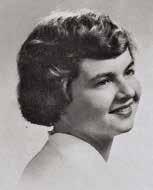
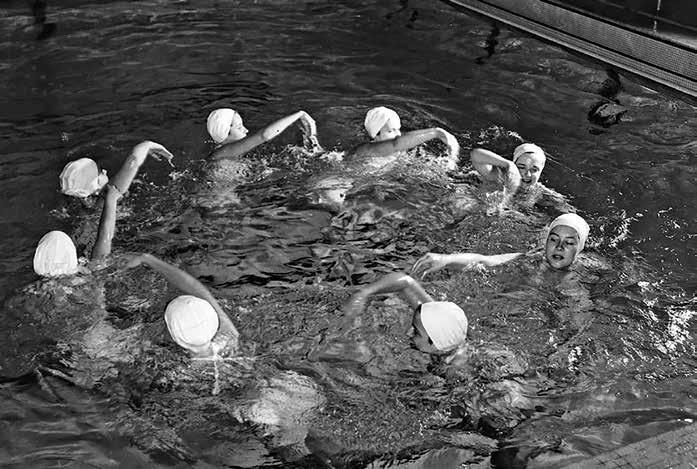
For information, call the Office of Gift Planning at 508-286-3391 or visit giftplanning.wheatoncollege.edu.
“As an alum, I have served on the Alumni Board of Directors and in a variety of volunteer roles at Wheaton over the years. I have kept a strong connection to the college because it’s a place that has given me so much. It’s where I met my best friends. It’s where I found my greatest strengths. It’s the place that prepared me for the working world. It’s the community that taught me about the importance of volunteering and leadership. Being a part of the Wheaton family is an ongoing privilege and one that continues to surprise and delight me. I established a five-year Wheaton Fund internship as a way to say ‘thank you’ and support a priority for the college. Wheaton was a transformative experience for me, and I want future students to have those same—and even better—opportunities.”
Molly Galler ’06 LaunchSquad, vice president Mary Lyon Leadership Society member